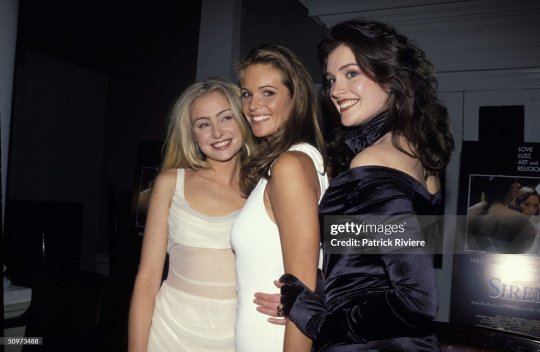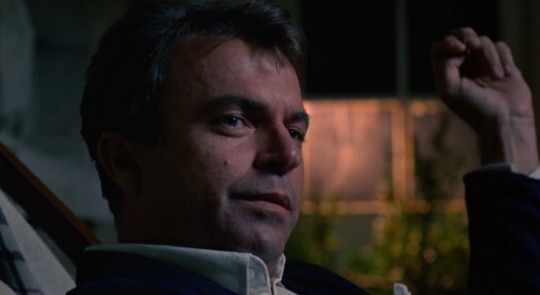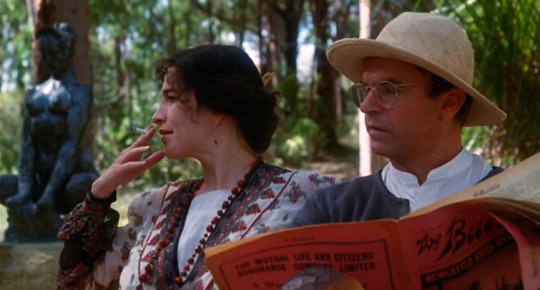#sirens 1994
Text



Sirens (1994)
#sirens#sirens 1994#john duigan#tara fitzgerald#elle macpherson#portia de rossi#kate fischer#wlw#water#pond#swimming#mermaid#siren#ophelia#mis gifs
5K notes
·
View notes
Text


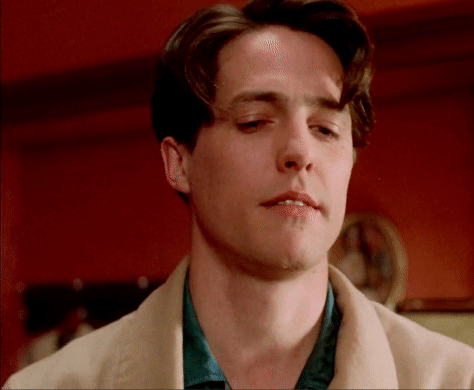
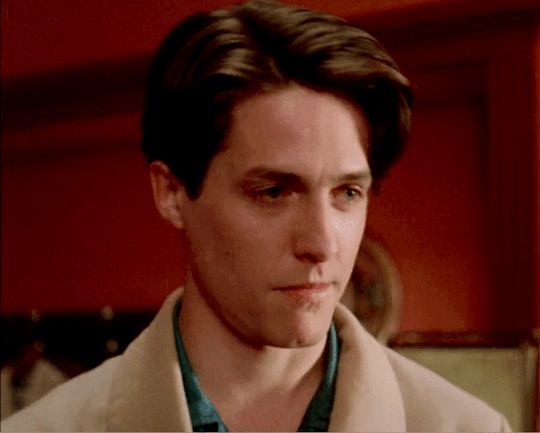

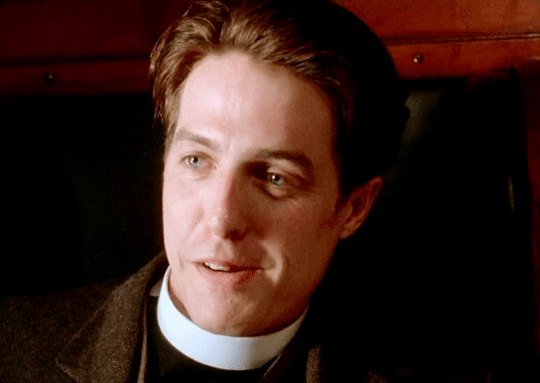

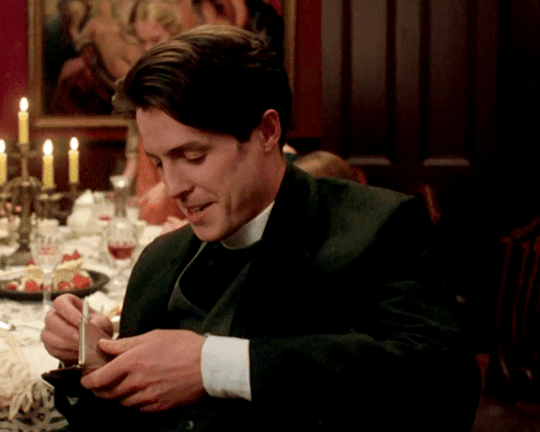
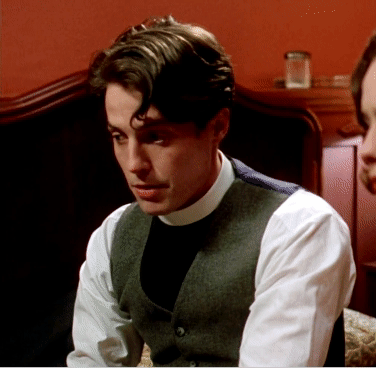

Hugh Grant in Sirens (1994)
15 notes
·
View notes
Text


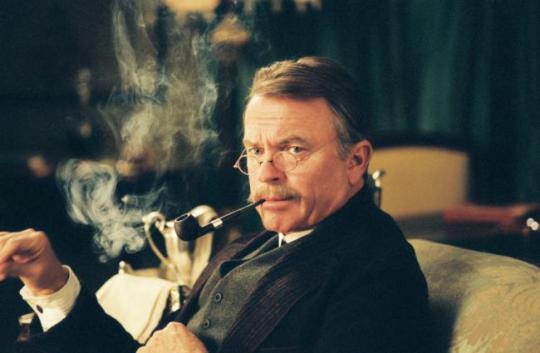



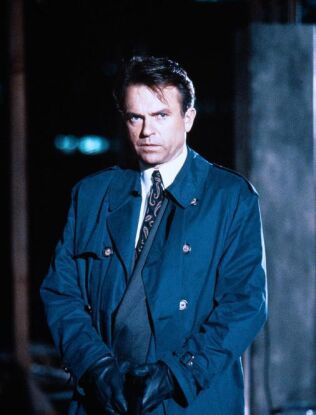
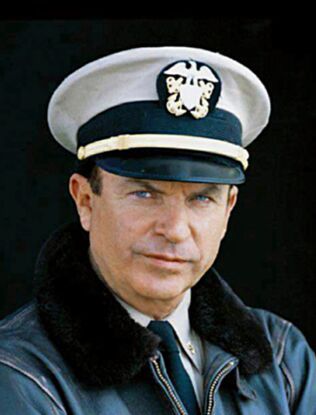
#sam neill#sirens 1994#wimbledon 2004#angel 2007#until the end of the world#the hunter 2011#the hunt for red october#memoirs of an invisible man#submerged 2001
9 notes
·
View notes
Photo



sirens (1994)
#someone pls take this moment away from me#it's been living living in my mind rent free since i first saw it#sirens (1994)#hugh grant#myedit: hugh grant
12 notes
·
View notes
Audio
Robert Allen, Alexander Brandon (Siren), Blurredd
"Diamondus" ("Diamond Dust" remix)
Jazz Jackrabbit (1994, 1998, 2004?)
Epic MegaGames
#music#tracked music#module music#ProTracker Studio Module#PSM#Scream Tracker 3#S3M#Robert Allen#Diamondus#Jazz Jackrabbit#1994#Epic MegaGames#J2B#Impulse Tracker#Alexander Brandon#Siren#Diamondus Remix#1998#remix#FastTracker II#XM#Blurredd#Diamond Dust#unknown year#2004#video game music
4 notes
·
View notes
Text
Speed Limit 2525
Requested Here!
Pairing: Tim Bradford x fem!reader
Summary: When Tim Bradford goes head-to-head with a bomber, he finds himself on a bus carrying a bomb and you.
Warnings: spoilers for Speed (1994) (I think this qualifies as an AU/rewrite), angst, bombings, nightmares, death and fear of dying, teasing, fluff, a little make out scene at the end? basically every warning that applies to the movie and The Rookie. I also made up a story about "Reaper"
Word Count: 11.7k+ words
A/N: This isn't completely proofread, but I'll be back soon to check it. I hope you enjoy!🤍
Masterlist Directory | Tim Bradford Masterlist | Request Info/Fandom List

Shoot him.
Tim doesn’t feel the trigger depress, only the hot desert air beating against his face. Though the trigger doesn’t move, a bullet rips through the barrel and into Tim’s only surviving squad member. He yells to warn his teammate, but no sound comes out. The wind is loud in the desert, yet the sound of Tim’s friend falling against the sand seems to echo for miles.
“Bradford,” the injured soldier coughs. “Wrong target, Reaper.”
Tim’s chest is tight with guilt and anxiety when he wakes. The sheets are wrapped tightly around his legs, and his shallow breaths distract him from freeing himself. Before he has time to orient himself, Tim’s phone rings and snaps him out of his post-nightmare, adrenaline-fueled state as he reaches across the empty pillow to answer it.
“Bradford,” he says.
“Get to the station as soon as you can,” Sergeant Grey demands. “Your Metro captain has me calling everybody in. We’re sending patrol units out, too. It’s gonna be a long day, Tim.”
Tim forgets about the nightmare and the memory within as he rushes to get ready. Tim’s tunnel vision focuses on work, and everything else fades away. Middle-of-the-night calls aren’t unusual, especially for a Metro Sergeant like himself, but this many officers getting a wake-up call is. Whatever is happening is big, and it doesn’t sound to Tim like it will be over any time soon. He makes it to the station in record time, and his commander is directing the other Metro officers when he enters.
“We don’t have time,” she says suddenly. “I’m running this force from here. Sergeant Grey will fill you in on the way. Get to the target location and stick together. Bradford, you’re with Temple!”
Tim nods as Harry Temple walks to his side. Harry was one of Angela Lopez’s first patrol partners, but he decided Metro was a better fit when the time to move forward in his career came along. Like Tim, he was in the Army before becoming a police officer, and he and Tim have some shared experiences. Neither of them is overly eager to bond over them, however.
“Do you know what’s going on?” Tim asks Harry as he turns on the lights and sirens in the shop.
“All I heard was ‘elevator,’” Harry answers. “I’m assuming they’re more to this than that.”
“Listen up,” Sergeant Grey says over the radio. “This is your official brief. When we roll up to the scene, we go straight in. No time for questions after we exit these cars. Fifteen people are trapped on an express elevator. The owner of the building is also inside. A bomb took out the cables, and our bomber is demanding three million dollars, or he blows the emergency brake, too. Cell phone service is spotty in the building, so we can’t rely on that to track anyone or anything.”
“Cell phone service is nonexistent in the elevator. A defensive move against trade secrets,” someone adds.
“What’s our clock, Sergeant?” Harry radios.
“He gave one hour when he called, which leaves us with twenty-eight minutes.”
“The only thing that’ll stop the elevator is the basement, right?” Tim adds.
“The city plans to avoid that. They’re working to release the money.”
Tim stops the shop beside the curb at the front of the building. He leaves the lights on as he and Harry remove their weapons from the back and meet the rest of their tactical team in the lobby.
“We can’t just unload them,” an officer says.
“The bomber wired the elevator doors and the hatch to trigger the bomb. So, he’s crazy, but he ain’t stupid,” Wade explains as he enters.
“Harry volunteers to examine the device,” Tim interjects. “He was on the bomb squad in the Army.”
Harry turns to glare at Tim as he says, “Right. And since Bradford also has Army experience, he’d like to provide a second opinion.”
“Fine,” Wade says. “You two check it out. Hey! Where’s the nearest access panel?”
“32nd floor,” a nearby employee answers on his way out. “It’s in the hall by the storage closet.”
“Report only. We’re in a holding pattern until we get word from your Commander back at the station. Confirm building evac and keep your radios active.”
“What about the other elevators?” Harry asks the employee.
“In an emergency, all passenger cars go to the nearest floor and shut down,” he says.
Tim frowns and moves his gun to his side. “Looks like we’re walking up the stairs.”
Harry nods before sprinting up the stairs behind Tim. Tim outpaces him but waits at the access panel for Harry to arrive with his small tool kit. He begins removing the nuts from the metal cover while Tim watches the hallway. Harry gives Tim a signal and Tim lifts the metal sheet. Light filters into the elevator shaft as Tim crawls through the opening and moves to the top of the elevator, where the bomb rests.
“Ladies and gentlemen, this is the L.A.P.D.,” Tim announces loudly. “There has been an elevator malfunction. Just relax and we’ll have you out of there as soon as possible.”
Harry looks up from the bomb and raises his hands in question.
“I didn’t lie,” Tim defends.
“I don’t recognize this work, Tim. Whoever our bomber is… he’s a pro and the work is solid,” Harry says.
“Bradford, Temple, hold position,” Wade radios. “We’re waiting to hear back from the bomber.”
Tim looks at his watch and muffles a curse. Their time is nearly out, and Tim continues to look at his watch rather than think about the lives in the metal death trap below his feet.
Harry sees the look in Tim’s eyes and decides to distract him. “Terrorist in a crowded room, five pounds of dynamite. He’s got a deadman’s stick. What do you do?”
“How close am I?” Tim asks, looking away from the elevator.
“Twenty feet.”
“Taser. He can’t let go with enough volts surging through him.”
“Alright, hot shot. Fifty feet?”
“Nice try.”
“Airport, then. Gunman with one hostage, using her for cover. He’s almost on a plane, you’re a hundred feet away.”
“Why is the hostage always a woman in these scenarios? Watch too many romcoms in the academy?”
“What do you do?” Harry repeats.
Tim kneels to examine the bomb once more and remembers his nightmare. Shoot him. He shakes his head before answering, “Shoot the hostage. Take her out of the equation, he can’t get to the plane, and I have a clear shot.”
“You are out of your mind, Bradford.”
“This is wrong,” Tim says suddenly. “He’s gonna blow it. How much do you think this elevator weighs?”
“Why? You wanna try to bench it?”
Tim doesn’t acknowledge the teasing as he adds, “We can do something about the hostages.”
“No shoot them, right?”
“Roof,” Tim reads as he points to a roof access sign. There’s a heavy-duty winch secured to the corner of the roof, and Tim runs to it as he says, “We don’t shoot them. Just take them out of the equation.”
Tim pulls the cable from the winch toward the elevator housing on the roof. He drops it in and watches it fall several feet before it catches.
“It’ll hold,” Tim tells Harry. “It’ll hold,” he repeats, quieter.
“Six minutes,” Harry alerts.
Tim throws his legs over the edge of the housing and lowers carefully onto the elevator cable. He hooks the winch hook to his tactical vest before moving down in the elevator shaft. Wade and the Metro team argue with the city council about releasing the money in the lobby, and no one has a clue that the shooter is listening to their radio frequencies. Without cell phones, they’re completely reliant on their radios to stay in touch with one another. Tim ignores his radio as he flips so he’s headfirst as he nears the trapped elevator.
“One more pop quiz,” Harry begins. “Psycho Sergeant Tim Bradford rigs an elevator to drop thirty stories. What do you do?”
Tim rolls his eyes before gesturing for Harry to hold the winch cable steady. A small pile of C4 waits beside his feet, but Tim ignores it as he secures the cable hook to the frame of the elevator.
“Why did I take this job?” Tim murmurs.
“Hey, a few more decades and you get a tiny pension and a free watch,” Harry answers.
“Hit the switch, Temple.”
Harry runs to the winch, hoping that the cables used to wash windows are strong enough to catch a free-falling elevator. He flips the switch, and the winch begins pulling in the cable. As the extra cable Tim pulled into the shaft begins unspooling, he moves up to the open access panel.
In the basement, a man missing a thumb presses a button on his handheld device. Instantaneously, a red light illuminates on the bomb. Tim sees it and throws himself through the access panel just before the bomb goes off. The passengers begin screaming, but the winch catches the falling elevator before it reaches the bottom of the shaft.
“What is happening, Bradford?” Wade asks, his concern evident over the radio.
“He’s early!” Harry yells as he returns from the roof.
“We have to get them out of the elevator. They can’t be lower than 28,” Tim exclaims.
When he and Harry meet the rest of their team on the 28th floor, they see that the elevator is stranded between floors. Only the floor is accessible from their current position, but there is no time to run up and down the stairs and look for the perfect access point. The elevator passengers lower to the floor and Tim and Harry pull people out one at a time. Tim pulls the last woman to safety seconds before the winch fails and the elevator plummets to the bottom of the shaft. After the sound of impact, Tim and Harry lean back against a wall and pant from the effort they exerted.
“Is your watch slow?” Tim asks.
“Nah. He jumped the gun,” Harry says with a shake of his head. “We had three minutes.”
“He blew more than the elevator. He blew his three million dollars. Why would he do that?”
“Maybe he decided it wasn’t worth it.”
Tim sits up as he declares, “He’s here.”
“He could have blown that thing from anywhere, Tim.”
“He knew we were doing something, that’s why he acted early. That means he’s close.”
“He’s not gonna corner himself in the building. The building we evacuated.” Harry leans his head back against the wall and thinks for a moment before he adds, “He’d want to be here, yes, but stay mobile… The elevators.”
“All of the passenger cars stopped, and we checked them.”
“Did we check the freight elevators?”
Tim’s eyes widen in realization as he and Harry push themselves to stand and run to the freight elevator doors. Once Tim pries the door open, he slides down the cable and lands on top of a car. Harry reluctantly follows and freezes when a noise echoes inside. Tim doesn’t notice Harry behind him as he prepares to enter the elevator. Before he can, a shotgun is fired between them, and Harry falls into the elevator. The man inside knocks him out with the butt of the shotgun, and Tim waits until the elevator moves up to drop in through the roof panel. As he lands, he looks up and sees a shotgun barrel in his face.
“I don’t suppose anybody would pay me three million dollars just for you,” the nine-fingered bomber muses.
He pulls the trigger, but the gun is empty. Tim removes his Glock from his side and demands the bomber lower the shotgun. He does so but opens his coat to reveal dynamite strapped to his chest and a deadman switch detonator in his hand.
“Hotshot,” the man begins. Tim’s jaw clenches as he realizes the man listened to their conversations over the radio, but he can’t say anything before the bomber says, “Terrorist holding a police hostage. He’s got enough dynamite to blow the building in half. What do you do?”
“Fifty cops are waiting for us in the basement,” Tim states.
“Standard flanking, I’m aware.” He presses a button on a device wired into the elevator controls. “So, maybe we’ll get off early.”
The elevator stops at a parking level, and Tim watches as the bomber pulls Harry toward the door. His eyes open slowly, and Tim keeps his eyes on Harry rather than the man pulling him.
“Well, end of the line, Bradford. This day has been a real disappointment, I don’t mind saying.”
“Why? Because you couldn’t kill everyone?” Tim asks.
“There will come a time, hotshot, when you will wish you’d never met me.”
“I’m already there.”
“Look! I have your partner, I’m in charge! I drop this stick and they clean us up with a sponge!”
“Go ahead!” Harry yells. “Drop the stick!”
“Shut up!” Tim demands.
Harry looks at Tim and mouths, “Shoot the hostage.”
Shoot him. Wrong target, Reaper. Tim takes a deep breath and shifts his arms to shoot Harry in the leg. He collapses onto the floor, and the bomber steps back in shock before running into the garage. Tim steps over Harry to shoot behind the feeling suspect. As the man reaches the door, he looks over his shoulder to smile at Tim before he disappears. Tim can’t check on Harry as the garage explodes and the force pushes him back against the wall. As Tim collides with the concrete behind him, everything goes dark. And everything changes.

After Harry’s unplanned and involuntary retirement party, Tim nearly oversleeps. His alarm pulls him from a dreamless sleep, and he winces at the sound before turning it off. Before he showers, he decides to go for a quick run to clear his head. Once he’s dressed and ready for the day, he drives to his favorite café. It’s one of the only places in Los Angeles where you can get a decent cup of coffee and breakfast without being surrounded by millennials working on their screenplays. Tim nods at another regular, Vince, as he enters.
“Hey, Tim. You look awful,” Bob, the owner of the café, says.
“Thanks, Bob,” Tim grumbles.
“Pretty boy party too hard?” Vince asks Tim.
“I- I don’t remember that well.”
“Wake up alone?”
“Always do.”
“Must be nice,” Bob interjects. “The last time I partied like that I worked up married.”
Tim shakes his head as he accepts his order and walks out behind Vince. He sets his coffee on top of his truck as he retrieves his keys from his pocket. Vince’s bus starts behind Tim and pulls away from the curb. Tim turns to wave at Vince before unlocking his door.
After it crosses the first intersection, the bus explodes. Tim stumbles as he looks toward the source of the noise. He runs to the bus as it rolls to a stop and fights against the flames to help Vince, but it’s too late. As Tim lays his hands on his knees in shock, he notices an abandoned cell phone lying on the sidewalk behind him. It rings continuously, and Tim doesn’t hesitate before he answers the phone.
“What do you think, Bradford?” the bomber from last month asks. “You think if you and Harry find all the driver’s teeth they’ll give you another medal?”
“Where are you?” Tim demands.
“Twenty-second delay. I’m in the air duct when the garage blows. Did you think I wouldn’t come prepared? I spent two years on the elevator job. Two years. I invested myself in it. You couldn’t understand the commitment I have. A child, Tim, you’re a child. You ruin a man’s life’s work and then think you can walk away. You’ve got blinders on, but I got your attention now. Didn’t I, Tim?”
“Why didn’t you just come after me?”
“This is about money – 3.7 million. Not you and your ego. None of it had to happen, Tim, and I hope you realize that. How long do you think the driver’s wife and kids will wait before they get worried tonight?”
“When I find you, I will kill you,” Tim threatens.
“There’s a bomb on a bus, hotshot. Once the bus hits fifty miles an hour, the bomb is armed. If the bus drops below fifty, it blows up. What do you do?”
Tim doesn’t answer but looks around for any sign of the suspect.
“What do you do?” he repeats.
“I’d want to know what bus it was,” Tim answers. He’s accepted the challenge and knows that it has to end with a death: either his or the bomber’s.
“You think I’m going to tell you that, Tim?”
“Yes.”
“Very good.” The man sounds happy, and Tim presses a hand against a nearby wall to control his anger. “Now there are rules, Tim; we have to do this right. No one gets off the bus. One passenger leaves, I will detonate it. Now, if I don’t get my money by 11 a.m., there’s also a timer.”
Tim looks at his watch: 8:05 a.m. “I can’t pull that money in time-“
“Focus, Tim! Your concern is the bus. Don’t call, the radios are jammed. Number 2525, running downtown from Venice. At the corner of Lincoln and Pico…”
Tim drops the cell phone and runs to his car to follow the bus. The lives on that bus are in his hands, and he doesn’t plan to shoot any hostages today.

“Please stop! Sam!” you yell as you chase your bus.
You don’t want to ride the bus, but since your most recent speeding ticket, it is your only mode of transportation. In the few weeks since your license was suspended, you’ve gotten to know the driver, Sam, and some of the regular passengers. You hope that camaraderie is enough to convince Sam to stop for you. The brakes on the bus squeal as it stops, and the door opens.
“This look like a stop to you?” Sam asks.
“You are an amazing man, Sam,” you say as you walk onto the bus. “The men in books and songs have nothing on you.”
You swipe your bus card and take a seat before saying hello to Ortiz, a regular passenger. Comfortable in your seat, and glad that none of the passengers are in a talkative mood this early on a weekday, you relax and hope to get your car back soon.

Tim drives his truck in and out of traffic, onto the shoulder, and into the emergency lane as he tries to catch up with bus 2525. Other drivers honk their horns, flip him off, and yell insults through open windows, but Tim doesn’t notice or care. If he can stop the driver before it reaches 50, then the bomb will never activate. The only danger would be the man with the detonator.

You look up as Sam slows for a traffic jam.
“Can’t you just drive over them?” you ask with a smile.
“Is it always like this?” a man asks from the back of the bus. “It’s my first time here, and it took me three hours just to get out of the airport.”
“Yep,” you answer. “It’s usually worse.”
“That’s why I never drive,” the woman behind you interjects. “I’d never have a car in this city.”
“I have a car. I miss my car,” you lament.
“In the shop?” the tourist asks.
“Something like that. Sam, seriously, the bus is huge, just run them over,” you say again.

When Tim sees the bus has stopped because of a stalled car ahead, he sighs before he pulls onto the shoulder. He exits his truck and runs toward the bus, but the accident clears faster than he expected, and begins moving before he reaches the door. Hitting his fist against the side, Tim yells for the driver to stop.
“Can’t blame him for wanting to get on the bus,” you mutter as you watch him slap an open palm against the door.
“Get off the doors, man! Wait for the next one,” Sam yells before he speeds up.
Tim removes his badge from his pocket a moment too late. He continues chasing the bus, and you look down at your phone as the other passengers watch the unknown man run down the freeway.
Nearly half a mile from his truck and with no other option, Tim stops and waits at the edge of the road. He sees a speeding sports car approaching, and he moves into the middle of its lane and raises his badge.
“Stop!” Tim yells over the traffic.
The young man driving the car slams on his brakes to avoid hitting Tim. Several cars behind him blow their horns, and he raises to yell over the convertible’s windshield.
“What the-“
“L.A.P.D.,” Tim interrupts. “Get out of the car.”
“This is my car! It ain’t stolen and you have no right!” the driver argues.
Tim pulls his gun from its holster and says, “It’s stolen now. Move over.”
The man nods quickly before he jumps over the console and settles into the passenger seat. Tim sits behind the wheel and swerves into another lane as he ignores the owner’s pleas not to scratch the car. Tim drives the expensive, sporty convertible exactly as he had driven his truck, and the man in the passenger seat covers his eyes in fear for his car more than his life. As Tim steers the car beside the bus, he lays on the horn. Sam looks over and immediately recognizes him, and his eyes widen to prove it.
“I’m a cop!” Tim yells.
Sam lowers the window and raises his voice to ask, “What?”
“L-A-P-D!” Tim spells slowly. “There’s a bomb on your bus.”
“There’s a what?” Tim’s passenger exclaims.
“I can’t hear you,” Sam says.
“There’s a bomb on the bus!” Tim repeats.
Sam shakes his head, and Tim looks at the convertible’s speedometer. He’s over 50, so the bus must be, too.
“Drive!” Tim yells as he gestures for the bus to keep moving. “FIFTY! STAY ABOVE FIFTY!”
Sam nods rapidly and trembles a bit as he holds the speed steady. The commotion draws your attention, and you turn in your seat to watch the man who desperately needs a ride or is crazy.
“Call the Mid-Wilshire division station,” Tim says as he hands his phone to the man beside him. “Ask for Detective Angela Lopez.”
“Okay, okay.” The man speaks into the phone briefly before passing it back to Tim.
“Angela,” Tim says.
“Why are you calling me on your day off?” she asks. “Harry’s here, if you’re looking for him.”
“He’s alive.”
“Who?”
“The bomber! He’s back.”
“Harry!” Angela calls.
“Tim, did he hit the bus in Venice?” Harry asks as he approaches Angela’s desk.
“Temple,” Wade interrupts. “We just got a ransom demand from your dead terrorist. Says he rigged a city bus. Where’s Tim?”
“Where do you think?” Harry replies.
Tim ends the call and navigates around the back of the bus to drive alongside the door. Traffic is increasing with the morning rush, and he doesn’t want to risk getting stuck in another slowdown. He honks to get Sam’s attention, and gestures for him to open the door.
“Drive straight,” Tim directs him. “Stay in this lane.”
Sam agrees before Tim speeds up to get ahead of the bus. He opens the driver-side door and hits the brakes, so the bus rips the door off the car. Tim presses the accelerator again to catch up with the bus as he is yelled at by the owner of the car.
“Take the wheel!” Tim says.
Tim waits until the car’s owner moves back into the driver’s seat to jump into the open bus door and pull himself up the stairs.

When the bus rips the door off a convertible, you finally look up. The man driving the car beside the bus is attractive, but you’re a little concerned for his mental well-being. Sam seems willing to help him, and you don’t understand why. When he jumps from the car and onto the bus, you stand and grip the bar above your head. He locks eyes with you before holding up a police badge.
“Everyone, I’m Sergeant Tim Bradford, L.A.P.D. We’ve got a slight… situation on the bus,” he explains.
“Are you crazy?” you ask.
“Ma'am, if you’ll please sit down, we can deal with this in an orderly-“
“But what are you-“
“Ma’am.”
His tone and the look in his eyes convinces you, so you sit down as Tim walks toward the back of the bus and looks at the other passengers. You watch him move and wonder if he’s truly a cop or just insane.
“Just stay in your seats and remain quiet,” Tim says. “Then we’ll be able to defuse the, uh, the problem.”
A passenger you’ve spoken to before, Jay, leaps from his seat and points a gun at Tim.
“Jay!” you yell worriedly.
“Get away from me!” Jay demands.
Tim pulls his gun and matches Jay’s stance. Two women at the back of the bus scream, and you look between Tim and Jay from your seat.
“I don’t know you, I’m not here for you. Let’s not do this,” Tim says calmly.
“Stop the bus, Sam,” Jay calls.
“He can’t. Look, I’m going to put my gun away.” Tim holsters it slowly and raises his hands to show they’re empty. “I don’t care about what you did. It’s over. I’m not a cop right now. See? We’re just two guys on the bus.”
Tim tosses his badge to the floor beside your feet, and you look at it before raising your eyes to Jay again. You understand why he calmed down so quickly; Tim Bradford has a soothing voice, and his presence is assertive but caring. More importantly, you can relax now, because his badge looks real. Jay’s hands begin to lower, but your fellow passenger Ortiz jumps onto his back before Jay puts it away.
Tim rushes forward as Ortiz tries to pull the gun from Jay. A shot goes off, and everyone ducks before a second shot fires.
“Sam!” someone screams.
You turn toward the front of the bus before moving to help Sam. Tim disarms Jay with minimal effort while another woman joins your side.
“Move him,” you say.
“He’s bleeding,” the woman argues.
“We have to stop the bus!”
At your words, Tim spins quickly to face you.
“No!” he yells. “Stay above fifty.”
“Sam is wounded,” you begin.
“You slow down, and this bus will explode!”
Tim holds your eyes and nods slowly. He’s not kidding, you realize. Turning quickly, you look at the speedometer, which falls to 51. While Sam is still in the seat, you push your foot onto the gas pedal and watch the line rise above fifty.
Tim handcuffs Jay to one of the poles before he explains, “There is a bomb on this bus. If we slow down, it will blow. If anyone tries to get off, it will blow.”
The women on the bus surround Sam and help him get comfortable as they try to slow the bleeding. As they pull Sam from the driver’s seat, you slide into position and steer into another lane to keep the speed over 50.
“We’re only gonna make it through this if everyone stays calm, sits down, and listens to me,” Tim adds.
You don’t hear everything he says, with your complete focus on the road ahead and the speedometer on the dash. Your knuckles are white because of your grip on the wheel, and you don’t hear Tim approach behind you. He lays a hand on the headrest behind you and leans down.
“This is great. A bomb on wheels,” you muse sarcastically.
“Can you handle this bus, ma’am?” Tim asks.
“Yeah, yeah. It’s just like driving a big Toyota, right?”
“Can you handle it?”
“I’m fine. What’s the plan? Is there a plan?”
Tim nods and stands to his full height. He watches you take a deep breath before turning to the rest of the passengers.
“Everyone, I need your cell phones,” Tim announces.
“No way, man!” the tourist yells.
“There is a terrorist out there with a bomb, and I don’t need any of you live streaming or interfering with the radio signal he could be using to detonate a bomb. So, I will only say this one more time. Phones - and anything else with a cellular connection – now.”
The passengers nod and offer all of their cellular devices. Tim accepts an empty bag from a woman beside Sam and places everyone’s belongings inside. He returns to your side and removes his phone from his pocket.
“Do you have anyone you need to call?” Tim asks softly.
“No. I- I don’t want to think like that,” you answer.
“We don’t have to. Everything’s going to be okay. Just keep doing what you’re doing.”
You nod and Tim lays a kind hand on your shoulder to add, “But I need your phone.”
“Oh, yeah. It’s- uh- it’s in my back pocket. Right side.”
Tim’s hand brushes your lower back as he pulls the phone from your pocket. He apologizes, though you can’t imagine why. You’ve only known Tim Bradford for a few minutes, but his words mean something, and you can only hope he keeps the promises he’s making.
“You’re a cop, right?” you ask.
“That’s right. Metro Sergeant,” Tim says. “But you can call me Tim if that’s what you’re asking.”
“Uh, no. Thanks, and you can stop calling me ‘ma’am’ while we’re at it. I just- I should probably tell you that I’m taking the bus because my driver’s license was suspended.”
“What for?”
“Speeding.”
Tim shakes his head and hides his smile before calling the station again. He leans forward, but keeps his hand beside you, to look at the news chopper circling above the bus.
“Lopez, it’s me. I took phones from all the passengers. Where do we start?” Tim asks.
“Alright. Harry and Wade are with me,” Angela replies.
“Check the speedometer, Bradford,” Harry says. “Has it been messed with? Any wires or anything that don’t belong?”
“Sorry,” Tim whispers as he leans in front of you to check the dash area. “No, it’s clean.”
“Then it’s gotta be under the bus. Probably rigged to one of the axles.”
“I can’t get under the bus to check right now. The whole you stop, you die thing. Remember?”
Tim doesn’t sound like he’s kidding; in fact, he sounds grumpier than when he first boarded, but his comment makes you laugh. He pats the back of your seat before turning.
“Sergeant Bradford,” Sam calls weakly. Tim kneels beside him to listen, and Sam stutters, “There’s a- an access panel… in the fl-floor.”
“Hold on, Angela,” Tim says into the phone.
He unscrews the panel and pulls it aside. The asphalt moves quickly under the bus, and Tim looks around before handing his phone to a passenger. You look up in the mirror above you to watch Tim briefly before returning your attention to the road.
“What’s your name?” he asks.
“Stephen. I’m a tourist,” Stephen introduces.
“Welcome to the City of Angels. Hold my phone, please. Tell my partner what I see.”
Stephen nods and raises the phone to his ear as Tim moves so he can see under the bus. He takes a deep breath; Tim knows a bit about bombs from his time in the Army, but it’s Harry’s expertise.
“Okay, there’s a bundle here,” Tim yells over the wind. “Pretty big.”
“There’s a pretty big bundle,” Stephen relays.
“Brass fittings. I think I can reach the circuit wire.”
“He can reach the circuit wire- No, don’t do that, Sergeant Bradford. It can be a decoy, he says. What else?”
“Hold on,” Tim murmurs before moving further underneath the bus. He sees the extent of the bomb and pulls himself back up to take the phone. “Angela, Harry, there’s enough C4 on this bus to take out everyone on the highway. There’s a wristwatch: gold band, cheap.”
You look back at Tim quickly before inhaling sharply. “Sergeant,” you call.
“What do you think, Harry?” Tim asks.
“Bradford!” you yell into the bus speaker.
Tim moves to your side and places a hand on the dash to lean forward. His face is right beside yours, and you wish you were nervous because of him and not the bomb underneath you.
“Everybody’s stopping,” you point out. “What do I do?”
“Get on the shoulder.”
“This is an exit!”
Tim flinches as you sideswipe several cars.
“Tim!”
“Off. Get off!” Tim yells.
You nearly miss the ramp and pull the wheel to the right to merge onto another road. Honking the horn and yelling for people to get out of the way, you take a deep breath. At least you’re off the freeway. Tim tells you to keep driving as he answers his phone again.
“Where?” he asks. “Got it.”
“Do I stay here?” you inquire.
“Yes. Just straight on this, they’re trying to clear the roads for us.”
“I’m never getting my license back, am I?” you grumble.
“The police commissioner will buy you a car if you ask,” Tim says quietly. “You’re doing well, okay? Don’t worry about anything else.”
You nod and return both hands to the wheel. Tim removes the flannel shirt he’s been wearing, leaving him in a white t-shirt, and drapes it over the back of your seat. Your eyes catch on his biceps before you chide yourself for getting distracted.
One of the phones in the bag rings, and Tim yells, “Who didn’t turn their phone off?”
No one is willing to admit their fault or doesn’t want to risk dealing with Tim’s wrath and ending up like Jay where he sits on the floor. Tim digs through the bag and pulls the ringing phone out. The number is one he recognizes, but he hesitates before answering.
“Taking their phones was smart,” the bomber says as the line connects. “2525… nice passengers, aren’t they? See, that’s the beauty of being in this day and age. I know everything about everyone on that bus. So, if you or your little girlfriend, or even the tourist from Kalamazoo try to double-cross me…”
“The bus explodes,” Tim interjects. “I’m aware.”
“What’s with the attitude, Tim? You’re seeing one of the prettiest places in the world, riding a bus for free… Oh, no, I know. Can’t shoot a hostage that makes that cold heart beat again, huh?”
“What do you want?”
“You know what I want! 3.7 million dollars. I get the money, and then we can both get what we want.”
“You don’t know what I want.”
“I know what you don’t want. Tell your girlfriend to keep her eyes on the road.”
The call ends and Tim raises the cell phone in his hands. “He knows who is on this bus.”
“How?” Ortiz asks.
“Your bus passes, your phones, both, maybe. Look, one of the conditions of our survival is that no one gets off the bus. If he knows who you are, then we are even more obligated to keep that promise.”
“You didn’t even try to get us off the bus!” Jay accuses.
“Because he would have blown it. I understand what you are feeling, but I need you to trust me, trust the L.A.P.D., and work with me on this.”
“Tim is this your team?” you ask over your shoulder.
A police car pulls into the lane in front of you as several more flank the sides of the bus. The road clears around them, but more news choppers are joining the airspace above you.
Tim nods and looks at you. “Are you okay?”
“Yes. What happens now, though?”
“My teammates are working on it. We’ve got gas and open road, so keep driving.”
“Is it- can I be okay and really nervous at the same time?”
“I’d be more concerned if you weren’t nervous.”
“You don’t look nervous.”
“My friend Angela says I never look anything; thinks I can’t show emotion because I can’t feel them.”
“Is it true?”
Tim looks at you and lowers to squat beside you. “No, it’s not.”
“How’s Sam?”
“The driver? He’s gonna be alright. Thanks to you.”
Someone calls for Tim, and he squeezes your shoulder reassuringly as he stands. You glance at him in the mirror as he returns to the access panel. A police helicopter drops to fly above you, and you wonder what the news stations and police officers know or think about the situation. The bus begins losing speed as you steer around a curve, and when you try to speed up again, you realize something is wrong.
Back at the station, Harry and Angela work with Wade and a bomb expert to search for a way to disarm the bomb and for their suspect. Harry has a description of the bomber, but there’s only so much they can learn about the bomb without seeing it.
“Sergeant Bradford!” you cry as you press the gas again.
“What?” Tim asks with wide eyes. You were calling him Tim, and your sudden change of formality and tone concern him.
“The gas pedal’s stuck.”
“What else can go wrong?” Tim asks under his breath. “Move your foot.”
You pull your foot from the pedal and steer as Tim presses his leg against yours to slam his foot down against the pedal. It doesn’t move, and the speedometer dips closer to fifty. Tim moves his hands to cover yours on the steering wheel and moves his leg between yours to try a new angle. You’re close to him, but the fear of dying keeps you from enjoying it in any way. He pushes the pedal again and his shoulders drop.
“There,” he announces as he steps back.
You take the wheel back and press the accelerator down again. The bus gains speed and you catch up to the police car before you.
“Lopez, talk to me,” Tim greets as he answers his phone again.
“You’ve got a hard left coming up,” Angela says. “Really hard.”
“Hard left up ahead,” Tim tells you.
“We’ll tip!” you argue.
“Who is that? Your driver?” Angela inquires.
“We’re not going to tip,” Tim says.
“Yes, we are!”
The curve in the road comes into view, and Tim suddenly agrees, “We’re going to tip.”
He leaves your side to move everyone onto the right side of the bus. The weight distribution keeps the bus from tipping, but as Tim helps you pull the wheel as hard as possible to make the turn, you forget why you were concerned. His presence is the only thing keeping you calm, and you wish he could just sit beside you the whole time.
“Angela, get those news crews off our tail!” he yells over the cheers of the passengers.
You look in the mirror beside you. The news crews must have arrived recently because you didn’t notice them before.
“On it. Harry’s working with the bomb squad. Keep it fifty,” Angela responds.
“Don’t try to make that a thing, Lopez,” Tim says before he ends the call.
“Hey, who’s doing this?” you ask Tim.
“The bomber? He’s just a guy who’s angry with me for foiling his last bombing attempt,” Tim explains.
“So, he’s trying again? Using you to get whatever it is he wants?”
“More or less.”
“What if you stop him again?”
“We do this again tomorrow. Until one of us dies trying.”
“That won’t work.”
“What do you mean?”
“I mean, I’m not available to drive tomorrow.”
Tim nods but doesn’t reply before a flatbed truck merges into the lane beside the door. His Metro captain and two officers are on the back, and the driver blows the horn to get his attention. Tim opens the door and moves out of the door to talk to them. You can’t hear much but suspect that they want to get the hostages off the bus, which Tim already said was impossible. Your sudden and unbending trust in him should probably concern you, but you will do anything and everything he tells you, even if that means staying on a bus with a bomb on it.
“He called the station looking for you,” an officer announces.
“Why? He has my cell,” Tim says.
“Maybe it died.”
“Just give him my number again! And keep looking; find this guy so we can move these people.”
Tim steps onto the main platform again and closes the door.
“Are they going to help us?” the woman holding Sam’s head up asks.
“Sure, they will. They’re the police,” someone jokes.
Another phone rings in the bag, and Tim pulls your phone out this time. He hadn’t thought to turn yours off because he was concerned about you and wanted to make sure you could drive like the bus needed to be driven.
“Hello?” he answers.
“Tim, you know I trust you. But it looks to me like you’re trying to move passengers off the bus,” the bomber says.
“I need one as an act of faith,” Tim argues. “The driver has been shot.”
“You shot another hostage?”
“He’s dying! If you want your money, show a little charity.”
The line is quiet for a moment before the bomber says, “Fine. You can try to get the driver off. I have more people to kill. Tell your girlfriend behind the wheel not to slow down or he won’t get a chance to bleed out.”
“We’re getting the driver off,” Tim announces after returning your phone to the bag. “Just him for now.”
Ortiz moves out of the seat to help Tim move Sam to the door and onto the truck.
“Get as close as you can,” Tim says. “A little closer.”
The side of the bus hits the truck and swerves, and you rush to apologize.
“It’s okay.” Tim says your name, and you know that he means what he says. “Perfect! Hold it steady!”
You sigh as Tim walks past you again after getting Sam to safety, but then you see a woman walking toward the door. The officers on the truck reach out to help her, unaware of what will happen if she steps off the bus.
“No!” you yell.
“I have to,” she responds.
“No! Don’t get off! Stop!”
An explosion echoes through the bus as the steps fall out and go underneath the bus. The female passenger disappears after she falls with the debris, and you look away quickly as Tim falls forward trying to catch her.
“You’ve got to get those choppers out of here!” Tim yells to his captain. “He’s watching!”
The bus is silent as Tim stands up and waits beside you. With your eyes on the road, he doesn’t see the tear that leaks out. When the passengers start arguing behind you, your grip on the wheel tightens.
“Hey!” Tim calls as he turns to face them. They silence, and he moves his attention to you. “How are you doing?”
Tim steps forward, sees the tears covering your face, and squats with an arm behind you. “What can I do?”
His voice is softer than when he yelled at the men behind you, and you can’t lie to him.
“I thought that was the bomb. When I heard it… I thought everything was over. But then I saw her fall under the bus, and-“
“You’re glad you’re still alive,” Tim finishes.
“I’m so sorry. Does that make me a terrible person?”
“No. It doesn’t mean you don’t care. We’re still alive, and we’re all allowed to be thankful for that. The guy who put us here? He’s a terrible person. Don’t think that you’re a bad person. You’re not.”
“Tim,” you say before pointing to his Captain, who is waving for his attention.
“There’s a gap in the freeway. It’s big. We have to get these people off, Tim,” he says.
“You know I can’t, Captain.”
“Tim?” you ask as he walks past you. “What’d he say?”
“There’s a gap in the road,” Tim tells everyone.
“How big is a gap?” Ortiz asks.
“50 feet, a couple of miles ahead,” Tim says.
“Tim?” you repeat. “What if I shift down and just keep the engine revving?”
“He thought of that… Floor it.”
“What?”
“There’s an interchange, maybe there’s an incline. Just floor it.”
“Okay.”
“Everyone keep your heads down.”
The police car leading you falls off the side, but you continue driving toward the unfinished overpass. The needle on the speedometer nears 70, and Tim waits beside you. As you approach the end, Tim yells for everyone to hold on. He puts his arms around you and pulls your head down with his. You feel weightless for a moment, grounded only by his arms around you before the bus collides with the other side of the interchange. Looking up over Tim’s arm, you see more road ahead and press the gas again, so you don’t slow down.
Your forehead begins to burn and hurt, and you press your palm against your temple as the people behind you cheer. Tim checks on everyone before returning to your side, and he immediately realizes that you’re in pain. He moves your hand and presses the bottom of his shirt to your head. It’s stained with blood when he pulls his hand away, and you grimace at the idea of a wound on your head.
“Get off here!” Tim calls suddenly.
“Yes! Get off!”
You obey and soon enter the Los Angeles International Airport. Tim gives you directions to an emergency runway and explains that you can simply drive here. Without traffic or road closures, the only concern is staying above fifty.
Being in restricted air space is also a bonus, and you notice that the news helicopters are hovering at a distance. Tim seemed concerned about the presence of news cameras, so maybe the location will also keep the bomber from knowing exactly what is happening.
“Yeah?” Tim asks as he answers his phone.
“The airport. Well done. You had some close calls, but you did well, Tim,” the bomber says.
“What do you want?”
“My money. Help me get it before it’s too late, will you? The negotiators think I’m doing this for fun?”
“Are you not?”
“Oh, now you think you know me too?”
“I know you want money you didn’t earn. More than you deserve.”
“I did earn it! I got a medal, too, you know.”
“Let me off. If you want my help, I need to explain that you’re not bluffing. Just me.”
“Alright. But you have to come back. I can see everything; remember that.”
Tim ends the call and slides his phone back in his pocket.
“There’s a plan now?” you ask.
“Maybe. He’s letting me off,” Tim says.
“Hey, don’t forget about us,” you call as he steps off the bus and onto an SUV. “He’ll be back,” you promise the others.
While you circle the airport runways, Tim works with the other officers he told you about to find a way to disarm the bomb. Ortiz walks to your side and looks out at the airport.
“Ortiz?” you ask.
“He’s not coming back, I’m telling you,” he says.
“He didn’t have to get on in the first place. Hey, get behind the yellow line.”
Ortiz looks down and takes on short step back. “You let the cop up here.”
“What is that?” Stephen asks as he joins Ortiz.
“I have no idea,” you answer as you look at Tim standing on the back of a truck covered in machinery. It pulls over in front of you, and Tim lowers onto a cart attached to a winch, and you mutter, “I was right. He is insane.”
“How’d they get that so fast?” Stephen asks under his breath.
You focus more on driving in a straight line as Tim disappears under the front of the bus. He looks up at you just before he disappears, and you nod once. Knowing that he’s under the bus makes you more nervous to drive than you have been at any other point today. Driving in a straight line at the airport is more stressful because Tim is underneath a moving vehicle and touching a bomb. You know he has friends and colleagues who are helping him, but you feel more than a need to survive when you look at Sergeant Tim Bradford.
The winch on the truck releases suddenly, and the cable unfurls.
“Check and see if he came out the back!” you demand. “Can you see him?”
“He’s not back here!” Ortiz calls.
“Look under the bus! Back by the tires!”
“I don’t see him.”
The winch cable snaps and the back tire bounces over something. You press a hand over your mouth in shock, and Ortiz runs to the back access panel.
“Please tell me he’s alright!” you yell. “Do you see him?”
“I see him!” Ortiz responds. “He’s alright!”
You look back and forth between the empty runway and the back of the bus. Ortiz and Stephen pull Tim up onto the bus, and you can’t decide whether to be angry or relieved with him. Tim thanks Ortiz before walking to your side.
“How are you?” he asks.
“You scared me!” you accuse. You slap his vest to express your displeasure before hissing in pain. “What’s that smell?”
“Gas. We have a new leak.”
“You caused a leak?”
“It was that or get run over. You can see the difficulty I had choosing.”
“Don’t try to be funny right now. I thought I killed you.”
“I’ll ask my captain to get a fuel truck.”
“Will it work?”
“I don’t know.”
“You’re not exactly comforting, you know that?”
“You just hit me and now you want comfort?”
You sigh and look at him again before saying, “Thank you, Tim.”
“Just doing my job… ma’am.”
Tim stays beside you while Harry and a S.W.A.T. team infiltrate the house listed on the bomber’s records. He was surprised by how quickly they found his identification, but now that they have the element of surprise, he hopes that this game is almost over.
When he gets another call, you can only see the anger in his eyes as he listens to the person on the other end. The bomber tells Tim that Harry and the S.W.A.T. team walked right into his trap. You watch him and can only wonder what is making him so mad. His life is in danger, but something is capable of pushing him even further, it seems.
“I’m going to rip your spine out. If you know as much as you think you do, you know I can,” Tim threatens lowly.
“Oh, I do, Reaper. That’s why you should do what you’re told. You and I both know you can’t do it without Harry and his ability to follow a cheap watch, anyway. Get me my money and it’s over. Otherwise, you, lumberjack-ie, and the others are dead. Got that?”
“Yeah,” Tim says after a moment. “Howie.”
The bomber hesitates at the mention of his real name but doesn’t let it stop him. Tim listens to Howard Payne’s demands before ending the call. Tim turns around and kicks where the stairs used to be before pulling against the handrail in his anger. You try to get his attention over his yelling, but it falls on deaf ears.
“Tim! Please!” you try again. “I can’t do this without you. Please.”
Tim slows his movements before gripping the rail beside you. His jaw is clenched as he looks at you, but your pleas soften his eyes.
“Please stay with me,” you whisper.
“We’re going to die,” he says.
“No. You got us this far, right?”
Tim leans against the dash beside you and looks at you. His shirt is still behind you. Lumberjack-ie. Your little girlfriend.
“Lumberjacks wear flannel, right?” Tim asks.
“Uh, yeah. As far as I know,” you answer. “Why?”
“He can see you.”
“What?”
“Keep looking straight ahead.”
You turn your face to the windshield and watch the runway as Tim examines the top of the bus. He sees the camera at the top of the windshield and shakes his head.
“He said, ‘your girlfriend behind the wheel’ and ‘lumberjack-ie’. I didn’t even realize. There’s a camera in your face. He can see the whole bus.”
“He can see me, but can he hear me?” you ask.
“Doesn’t seem like it.”
“Bus cameras can’t be very high-tech, Tim. Can’t your people get it on a loop or something?”
“You’re brilliant,” Tim murmurs before pushing himself off the dash and to his feet. “Guys, there’s a camera over my left shoulder. I need everyone to sit still. No big movements, no talking, just look concerned and sit still.”
He calls his captain and asks for someone to approach the news trucks at the fence to end the live broadcasts and use their equipment to make a video loop. His captain agrees and texts Tim with an update that the reporters are cooperating.
“Remember, stay relatively still. Just look scared,” Tim reminds everyone.
“That won’t be hard,” Ortiz grumbles.
Tim leans beside you while the video is being recorded. You drive in silence for a minute before noticing the blinking red light on the dash.
“Tim,” you whisper. “Look.”
“Cap, roll the tape. We need fuel,” Tim says into his phone.
“We only have a minute recorded. That won’t convince him, we need more footage” Wade argues.
“No time. Get these people off before this bus runs out of gas.”
“Fuel tanker is running behind. Driver said big rigs need radio signals, and they’re still jammed. Crazy not stupid, right?”
“Right.”
“Now what?” you ask Tim. “Are you tired of that question yet?”
“I’d like an answer to it,” he replies. “Get alongside this bus, okay?”
You nod and drive steadily alongside an LAX passenger bus. Tim’s team lays a wooden board between the bus doors and helps people cross to safety. You listen to Tim encourage the passengers across and are glad he was the cop who got on the bus today. The rear tire blows out suddenly, and you pull the steering wheel back to the middle and yell for Tim to come help.
Tim falls on his way back to the front of the bus, but when he reaches you, he moves his arms across you to pull the wheel.
“Use this to hold down the gas pedal,” he says.
You take the device from his hand and lower it into place. Tim steps back to tie the steering wheel to the floor of the bus, and you steer to keep the bus straight while he works. The moment it’s secure, he pulls you to your feet and tells you to get on the metal access panel.
“I can’t do this,” you argue.
Tim raises his hands to either side of your neck and brushes his thumbs along your skin as he promises, “Yes, you can. I’m right here with you.”
You swallow nervously and nod before sitting on your escape route, a thin piece of metal that Tim moved with no problem. Tim moves to lay over you, and he wraps an arm around your waist as you hide your face against his shoulder.
“I got you,” he promises once more.
The bus turns and the access panel cover falls out of the bottom. You clutch Tim tightly as the metal door slides across the runway and into a nearby patch of dirt. He sits up and watches the bus slow as it nears a plane but doesn’t let go of you. Just before the bomb detonates, Tim pulls you down again and lays over you to protect you from any debris. Sirens echo in the distance, and you wrap your arms around Tim’s back.
“Are you alright?” he asks again.
“No,” you answer, your first honest answer of the day. “Oh, I hate the airport.”
Tim moves to your side but keeps an arm around your shoulder as he looks into your eyes.
“You can’t get mushy on me. You can’t show emotion, remember?” you tease.
“I think I might be able to after all.”
“Relationships that start like this never last. It’s just the high-stress, adrenaline pumping, all that.”
“Oh, yeah? Well, maybe we can change that.”
“Uh, I think your friends are here.”
Tim looks up but doesn’t move as Angela and Wade exit a police car and run toward him.
“I was worried about you,” Angela says. “And here you are.”
“I’m sorry about Harry,” Tim offers. “I wish we could have changed it.”
“You good?” Wade asks. “’Cause I might be a nice guy and let you take the rest of the day off.”
“And stop worrying about what we could have done differently. You saved a lot of lives today, Timothy,” Angela adds.
“A day off sounds like a good deal,” you murmur.
Tim shakes his head before introducing you to Detective Angela Lopez and Sergeant Wade Grey. When he finally stands and sees the scrapes and gashes littering your skin, he forces you to let a paramedic treat you. Tim follows you to the ambulance but hangs back to talk to Angela. He’s lost a partner before, too, and knows what it’s like.
“I’m sorry for bringing everyone into this. Howard could have just come for me,” Tim concludes.
“I appreciate everything,” Angela responds. “But, you’re going to the hospital, too. Is that Chen?”
Tim turns quickly and sees Lucy running toward the police cruiser parked behind the ambulance.
“Sergeant Grey!” she yells. “We’ve got Payne on the line, and he wants to know when he’s getting his money. Whoa, Tim, are you alright?”
“He doesn’t know,” Tim says. “He doesn’t know the bus exploded.”
“Tell him thirty minutes,” Wade alerts all the nearby officers.
“Stay in the ambulance,” Tim tells you.
“But I-“
“Ma’am, stay in the ambulance.”
You nod and climb into the ambulance after refusing help from the paramedics. They continue bandaging a cut on your leg as Tim climbs in.
“I need to make a quick stop on the way to the hospital,” he tells the driver.
“Where?” she asks.
“The drop spot. Pershing Square.”
The driver reluctantly agrees, and you watch Tim as she drives. He demands you stay in the ambulance until he returns, and you agree but don’t mean it. You’ve been beside Tim for most of the morning, and you neither remember how to be away from him nor do you want to. You stand on the sidewalk beside the ambulance and watch people move around you. It’s another normal day for them, but your life will never be the same after today.
“Miss, you can’t stand here, you need to move back,” an older officer says as he grabs your shoulders.
“Oh, I’m waiting for Tim-“
“Tim Bradford, yes. He asked that I move you out of harm’s way.”
“But he told me to stay here.”
His hold on your shoulders tightens as he says, “And I’m telling you to move.”

“Payne is late,” Angela complains.
“He’s not late,” Tim says. “He’s never late.”
“Two hundred cops are watching that sculpture, plus a tracker in the bag. He hasn’t been here,” Wade explains.
“Turn on the tracker,” Tim requests.
“What for?”
“Just do it!”
Wade presses a button on the laptop before him, and the blinking light of the tracker travels across the screen.
“He’s got the money,” Angela says.
Tim runs out of their hiding spot and to the drop spot. He pushes the art installation over and kicks it when he sees the opening in the sidewalk beneath it. As he drops into the defunct subway system, he sees someone walking farther into the tunnel and pulls his gun.
“L.A.P.D. Freeze!” he yells.
The person stops, and he aims at their head before saying, “Pop quiz. Someone has a clear shot at your head. What do you do?... Turn around.”

“If you don’t do it, I’ll kill Tim Bradford,” Howard Payne threatens as he secures a vest covered in dynamite around your chest. “What are you going to do?”
“Wait- wait for him to come in and walk away. Then I listen to you,” you answer shakily.
“Perfect. Maybe you two can have your happily ever after all. You say one word that I don’t like and you’re both dead.”
Howard disappears down the subway, and you bite your bottom lip to refrain from crying or screaming for help. Tim may shoot you, no questions asked, but at least he will be safe. When you hear something crash above you and sunlight infiltrates the dark staircase before you, you take a deep breath and begin walking away.
Tim’s voice doesn’t carry the same comforting words or soothing lilt as in the bus, but you still recognize it and want to hear it as he yells at you.
“Turn around!” he demands.
You turn slowly and can see the moment Tim realizes he’s pointing his gun at you.
“I’m sorry,” you whisper.
The apology echoes off the concrete walls as Tim lowers his weapon. You don’t see or hear him, but you can feel the change when Howard appears behind you.
“Be prepared!” Howard says as he walks up the stairs behind you and raises the detonator, a deadman’s switch. “What are you gonna do, Tim? I don’t think you can shoot this hostage.”
“Let her go,” Tim demands as he points his gun at Howard.
“I don’t think I’m going to do that. Move the money,” he tells you.
You transfer the money from the L.A.P.D. bags and into Howard’s duffel bag as Tim yells at him to let you go.
“You don’t need her!” Tim adds.
“I will let go,” Howard threatens as he moves the detonator switch. “You don’t get it, Tim. Do you know what a bomb that doesn’t explode is? It’s the cheap, gold watch they gave me after I lost a finger and a life to my country.”
“You’re crazy.”
You push yourself against the wall as you listen to their exchange, but you keep your eyes on Tim rather than the bomb just below your chin. Howard demands you take his money and enter another part of the tunnel system and you know that you’re going to obey because he’ll kill Tim if you don’t. You tear your eyes from Tim and walk exactly where Howard leads you.
As you enter a crowded stop, Howard fires several shots into the concrete ceiling as you drop your head and cover your ears. The subway passengers waiting for the next train flee in terror as you try to get away from Howard. Tim can’t be far behind, but when you’re pushed into a subway car, you’re tempted to think that no help is coming. Howard handcuffs your hands around a pole before the subway lurches into motion.
At the back of the subway, Tim struggles to pry a set of doors open before he falls into the car. He moves strategically through the empty rows of seats with his mind on you and ending this game with Howard Payne once and for all.
The subway conductor reaches for his radio, and Howard forces the deadman switch into your hands and tells you to hold it. He turns his back on you and kills the conductor as you struggle to move away.
“Look, you won. You beat Tim, you beat everybody, you can just throw me off the train. I don’t care,” you plead.
“You see this stick? When you explode, the police will come there. But that’s not where I’ll be, so I get more time. I promise it won’t hurt,” Howard replies as he pulls the detonator away from you.
A series of dull thuds echoes, and Howard looks up quickly. He smiles, and it makes your stomach flip.
“Hey, Tim. Is that you?” he asks. “He’s so persistent. Wouldn’t be able to interest you in a bribe, would I, hotshot?”
Howard kneels and opens the duffel bag full of cash. You watch as a dye pack explodes in his face and paints his money purple. In his anger, he fires bullets into the roof, and you drop to the floor as Tim rolls out of the line of fire. Howard runs through a door, and you can only listen as he climbs onto the roof and begins struggling against Tim.
Howard has the deadman stick in his hand and can kill you by moving a centimeter to the left or right, but you’re more worried about Tim with every noise against the roof. You stay low on the pole you’re cuffed to, twisting your wrists and manipulating your fingers as you try to slip free. The struggle above you silences suddenly, and you watch the door nervously.
“Tim!” you call when he rushes in. “Tim. Where’s Payne?”
“Uh, he lost his head. Turn around,” Tim says.
You circle the pole, and Tim rips a wire free before loosening the straps of the vest.
“Let’s take this off,” he says before pulling the vest away from your chest.
“Tim, can you hear me?” someone asks through the driver’s radio. “This is Wade. Listen, the track isn’t finished.”
“What else can go wrong?” you murmur.
“Wade, I copy,” Tim radios.
“Do you copy? Try the emergency brake.”
“I copy!” Tim tries again before throwing the radio down.
He steps to the right and hits the emergency brake. After the train doesn’t even slow, he begins hitting other buttons, but nothing happens.
“None of this works!” he exclaims as he hits the control board.
He turns away from the useless machinery and returns to you. When he notices the handcuffs holding you in place, he slows.
“You can uncuff me and we can get off,” you say with an exaggerated nod.
“I don’t have a key,” Tim replies.
“You don’t have…”
You trail off and look at the handcuffs. If only you could slip your hands through them, you think. Tim begins pulling and kicking the pole as you try again to pull your hands through the metal cuffs. He pauses and lays a hand against your arm to look at how tight the cuffs are.
“Help me pull,” you grunt as you lean your weight back against the restraints.
“No, no,” Tim says quickly as he pulls you forward. “You’re just hurting yourself.”
You stand still and see a bead of blood running down your fingers. As you stare at it, Tim walks to a map on the wall. He remembers the nightmare again; a series of bad memories that end with him, “the Reaper,” standing alone in the desert before being rescued and awarded a medal. As he searches for a way to save you, Tim decides that he will never shoot the hostage again, and he won’t leave you behind, even if that means dying with you.
“Tim, please just go,” you beg.
“There’s a curve ahead. I can make it jump the track.”
“Tim! Sergeant Bradford!” Tim turns to you, and you repeat, “Get off this train. You can still jump. Tim, please. Please.”
Tim ignores you as he returns to the controls and increases the train’s speed. You slide your hands down the pole as you sit on the floor, and Tim walks silently to your side. He leans in beside you, and you raise your arms to wrap around his neck as you lean your head against his. He moves his arms around the pole to circle you and holds you tight as the train picks up speed.
“I’m sorry,” you whisper just before the lights go out.
The train car hits something and spins, but Tim tightens his arms around you. With every bump and move of the subway, you become more convinced that you’ll never get out of this position. Light enters the windows as you crash through something, and the car flips onto its side as it lands on asphalt. The impact loosens the pole, and you fall onto Tim, whose grip on you doesn’t waver for a second. As the car slides to a stop, you squeeze Tim and take a deep breath.
“You didn’t leave me,” you say before forcing yourself to open your eyes.
Tim cradles the back of your head before moving his hands to your back. You lean up gently and look into his eyes again.
“I told you to leave me!”
“I didn’t have anywhere to be just then. Rest of the day off and all,” Tim responds before pulling you down against him.
He kisses you, and you’re surprised that it is more than adrenaline. The kiss is more than a relief to be alive, and you want to feel Tim Bradford at your side every day for the rest of your life (which would have ended today if not for him). You move your hands to Tim’s short hair as you return his kiss. It’s relief, joy, love, and passion in a single touch. When Tim begins breathing heavily against you, you move up.
“I’ve heard relationships that start during intense situations like this never work,” Tim says.
“Oh,” you sigh. “Then I guess we’ll be the first.”
“Whatever you say, ma’am.”
Glass rains down on you as you kiss Tim again, and though your day went nothing like you thought it would, it’s now the best day of your life. Tim helps you stand as his team approaches the scene, and you stop him before you exit the car.
“You know if this was a movie, they’d make another one where the same thing happens again, right?” you say softly.
“We’re never taking public transportation again,” Tim states.
“Yeah. Hey, where is the truck you were driving this morning?”
Tim hesitates and tightens his arm around your waist before turning away to yell, “Chen! I need you to do something for me.”
#tim bradford x reader#hanna writes✯#tim bradford x fem!reader#tim bradford x y/n#tim bradford x you#tim bradford imagine#tim bradford fic#tim bradford#tim bradford the rookie#the rookie abc#requests#fem!reader#speed 1994
128 notes
·
View notes
Text
Earl Sweatshirt: A Geography of Grief and Growth

I made myself the poet of the world. The white man had found a poetry in which there was nothing poetic….I had soon to change my tune.
—Frantz Fanon, Black Skin, White Masks (1952)
I suggest that we do not necessarily need to hear and know what is stated in its entirety, that we do not need to “master” or conquer the narrative as a whole, that we may know in fragments.
—bell hooks, “Teaching New Worlds/New Words” (1994)
Breakin’ ’em down to micro-fragments.
—Saafir, “Battle Drill” (1994)
What is asked of me is not to ascend but to descend.
—Robert Bly (1990)
1.
Earl Sweatshirt’s arc, swerving and dervishy, isn’t difficult to see, as we’ve witnessed it with him—we’re either interlocutors or interlopers, both with questionable motives. So when Earl looks back on school daze, as he does on “OD,” we look back with him (though ours is often an imperial gaze [HOW COULD IT NOT BE?]). We tee-hee and titter as we hear that “somebody tooted in the student commons,” tooted being the most puerile word for gas he could have chosen. An array of scatological options were ignored. It’s a deliberate gesture toward juvenilia. He doesn’t want his expression to be too mature, ha. He wants to welcome you to the romper room, ha. Remaining a kid until the moment he expires, apparently. So he sets the adolescent scene: the student commons. “The bell rang,” and the accused student was spared the prolonged opprobrium. In about four seconds, the student will begin to post. He “went home and argued in the comments,” channeling his embarrassment elsewhere, talking shit (shit) on the internet behind the safety and quasi-anonymity of a screen—an odd facade. He can walk right up to your avi and diss you. That’s his philosophy. The public humiliation replaced with a private self-possession. The discomfort of the crowd exchanged for the solace of solitude.
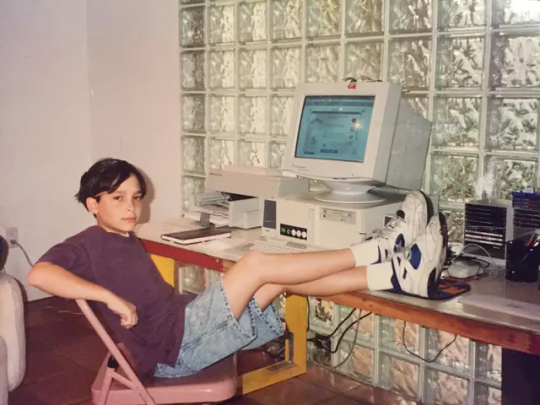
2. DID AN ANGEL SPEAK?
The sonics of “tooted” and “student” are twee, giggle-inducing. We laugh along with the concatenation of m and n phonemes [somebody | student | commons | rang | went | home | then | in | comments]. The near-homophonous commons and comments scan hysterical. With “OD,” it’s easy to confuse adolescence with adulthood. That “somebody” committed this social transgression seems defensive. Maybe it was him—the subject, Earl, Thebe—seeing as how the rest of the song is delivered in the first-person. Embrace the Age of Immaturity. Channel the Fat Boys: Darren Robinson’s flatulent beatbox. Place it beside the disorderly lyrics that Bobbito spits: “I write my own shit from finish to start, / Diminish the heart, / I eat a knish and then I fart.” Like the Cenobites, Earl kicks a dope verse, and only that. “I keep my sentences short,” he says on “EAST.” Beauty is brevity, brevity beauty. A “brevity pack,” as Earl has referred to the Feet of Clay songs. He strives to be live ’cause he got no choice. He runs his own business like James Joyce. In A Portrait of the Artists as a Young Man, a similar flatus incident unravels. At Clongowes Wood College (Stephen Dedalus’s Coral Reef Academy), a “stout student who stood below…on the steps” by the name of Goggins “farted briefly.” Sonically, the sentence shares much with Earl’s opening line. Dixon asks, in a “soft voice,” “Did an angel speak?” But the others react with bellicosity and name-calling (stinkpot; flamingest dirty devil). Goggins doesn’t retreat home; he simply asks, “It did no one any harm, did it?” You still bet that you can harm me, but you don’t alarm me, Goggins might say another way, reprising Del the Funky Homosapien, echoplexing Masta Ace.

3.
Earl “watched the doppler move,” the wavelength shift—the siren song of the “toot,” something insidious—or maybe it’s just the tremors we’re feeling. Woop, woop: that’s the sound of the beast, KRS would say. The frequency shivers. The shift, the movéd doppler, means Earl is immediately older, he’s the child who “get[s] introduced to violence,” even if he acknowledges the line was inspired by his nephew on a playground in South Africa, experiencing apartheid reincarnate as a whiteboy cuts him in line for the slide. Cranly, bullying Goggins, “shove[s] him violently down the steps.” The doppler moves. It slides into violence—like the violence visited upon the MOVE compound located at 6221 Osage Avenue in Philly in 1985. Gradations of black/white. ELUCID mentions the “gray on [his] face showing age” on his Osage (2016) project. Isn’t it strange—how the youngins can turn cold, hoarfrosty, in an instant? The grayscale cover to ELUCID’s tape is graced by a photograph of Birdie Africa, the sole child survivor of the siege. The bone fragments of the MOVE children have since been used in anthropology courses at UPenn and Princeton—case studies. It’s a good trope. Fascinating stuff.
4. TRYIN’ TO TRANSFORM YOU BOYS TO MEN LIKE DAYCARE
When JuJu of the Beatnuts asked, You want pain?, he wasn’t referencing the dramatical-traumatical pain Earl negotiates—JuJu’s question posed a ruffneck and ruffian pain on “Watch Out Now.” Somewhere closer to Marcy, where Jay-Z’s streets was watching. Earl clocks minutes, anaphoric with what he watches (I watched the doppler… / I watched a child…), much like Dylan’s portentous hard rain in which he saw endless racialized visions: “I saw a newborn baby with wild wolves all around it”; “I saw a black branch with blood that kept drippin’”; “I saw a white ladder all covered with water.” For Earl, the ladder is a slide. The saw is watched. Witnesses all.

5.
In “Theory as Liberatory Practice,” bell hooks writes that she “came to theory because [she] was hurting”: “I wanted to make the hurt go away. I saw in theory then a location for healing.” hooks says that she “came to theory young, when [she] was still a child,” citing Terry Eagleton who argues that “[c]hildren make the best theorists.” Children, Eagleton insists, possess “a wondering estrangement.” No wonder, then, that “since a jit” Earl has found no use in “giving up.” He rather make it make sense.
6.
I beat you to the point. Having gained experience, there’s nothing you can tell Earl that he doesn’t already know, that he hasn’t already seen. He’s seen enough, had enough. He doesn’t await the mob’s pursuit; he places the noose on himself, he RE: DEFines it within his own lexicon. His noose, therefore, “is golden.” He’s a young youth, rockin’ the gold [noose], DEATHWORLD goose. He speaks with criminal slang, with a split tongue like ELUCID. Where ELUCID was “true and living, actual—no dull axes, owner of all heads,” Earl is “true and living, lonesome,” with no skulls to keep him company. He has to square up with the “pugilistic moments” on his own.
7. I AM OLDER THAN I ONCE WAS AND YOUNGER THAN I’LL BE
I’m thinking of “The Pugilist at Rest” (1991) by Thom Jones, whose epileptic protag describes a “grainy black-and-white photograph” of the bronze statue called The Pugilist at Rest. The pugilist, with a pocketful of mumbles, has “slanted, drooping brows that bespeak torn nerves” and a forehead “piled with scar tissue.” Torn nerves and scar tissue—sounds like the physical manifestations of grief. And, yes, Earl has grieved, and he continues to grieve—as listeners, we’re accustomed to his grief pedigree, as per Ka. In the past, Earl was “panicking a lot”—he just “want[ed] [his] time and [his] mind intact.” That’s a cold fact.
The narrator of “The Pugilist at Rest” readies himself for a cingulotomy—a psychosurgical procedure that will “cauterize a small spot in a nerve bundle in [his] brain.” In other words, he wants to keep his mind intact. The neurosurgeon promises the operation will lift “the heaviness of a heart blackened by sin,” which is what convinces the narrator to agree to it. Good grief, he thinks, he’s been reaping what he sowed. He “can’t go on like this,” barely living “with a deadening sense of languor,” a phrase which calls to mind Earl’s lethargic, slugabed flow. Feeling insane in the membrane, like he’s a Soul Assassinated, exploring the depths beneath his whooligan behaviors. 376 was a brothel. “Good and evil are only illusions,” Jones writes. In anticipation of the surgery, the protag considers the worst-case [so what, so what] scenario: “If they fuck up the operation, I hope I get to keep my dogs somehow.”
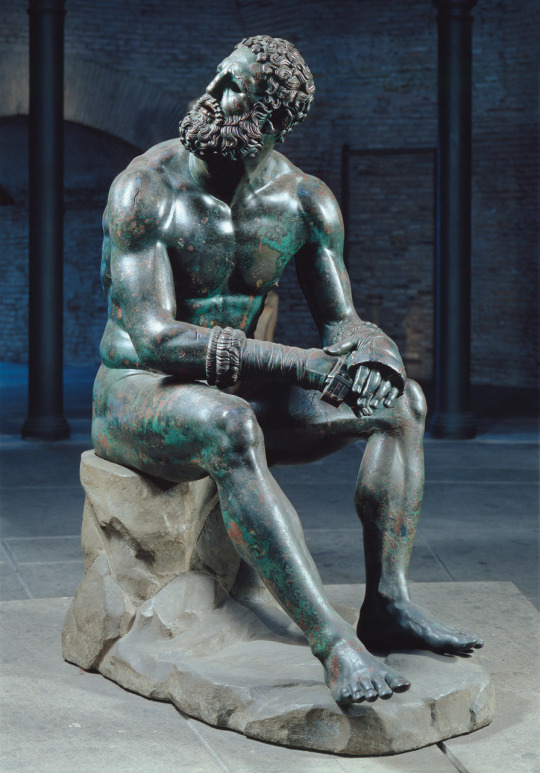
8. MOURNING & MEDICINE FOR MELANCHOLIA
Grief carries its own antidote along with it.
—Charles Brockden Brown, Wieland (1798)
“Grief is the door to feeling,” Robert Bly says. But Earl, on “Grief,” told us he “ain’t been outside in a minute”—and that minute, whether we’re speaking with criminal slang like Nas on “It Ain’t Hard To Tell” or not, is an eternity. Earl hadn’t crossed that threshold, hadn’t kicked in that door. MIKE would realize it much later on “No Curse Lifted (rivers of love),” how you “had to walk through the grief,” even if it “was the worst feeling.” In 2015, though, Earl found these passageways distorted. Like the undulating photograph on the cover of his first mixtape. Like the blur-obscured selfie on the cover of Some Rap Songs. Like the static-scrambled cover of I Don’t Like Shit, I Don’t Go Outside. Earl’s dealt in fragmentary confuzzled noise for a full career. He’s been standing on the corner, red burnt, moving down alien lanes paved by GBV, greenthinking to himself. It ain’t hard to tell that Earl “don’t act hard” and yet is a “hard act to follow.” The density or opacity of his exterior notwithstanding, grief don’t come easy. “As men,” Bly says, “we’re taught not to feel pain and grief as children.” So Earl spits somnolent, numb-tongued and slack-jawed. Like he said on “Cold Summers”: muffle my pain and muzzle my brain up.
“I’ve been alone in my shit for the longest,” he spit on “Grief,” and in work as recent as “Vin Skully,” he’s still figuring out “how to stay afloat in a bottomless pit.” Bly says that “we receive something from our father by standing close to him—something moves over that can’t be described in material terms.” Bly speaks of being in a “conspiracy with his mother” from early on. Earl finds himself “thinking ’bout [his] grandmama” while he wallows and lies in a bottle. “Grief” catalogs all the things his mama taught him. Earl’s work, of late, is autodestructive. He peels away and pastes back haphazardly. He vibes with this Bly shit: “If you can deny something so fundamental as grief in the whole family, you can deny anything. And then how can you write poetry if you’re involved in that much denial?”

Bly goes on to quote Alice Miller, the psychoanalyst who gave us The Drama of the Gifted Child (1979): “When you were young, you needed something you did not receive, and you will never receive it. And the proper attitude is mourning.” Mourning is the proper attitude, not blame—mourning. Mourning makes its way through moaning and mumbling—Earl’s current intonation. On “Grief,” he “cut the grass off the surface [and] pray[s] the lawnmower blade catch the back of a serpent.” Philip Larkin’s poem “The Mower” (1979) leans more literal: “The mower stalled, twice; I found / A hedgehog jammed up against the blades, / Killed. It had been in the long grass.” Larkin’s speaker genuflects before the innocent critter, recalling how he “fed it, once.” Now, he mourns how he has “mauled its unobtrusive world, / Unmendably. Burial was no help.” Earl, of course, is less forgiving of the serpents in the grass. They’re threats, not friends. Still, a void opens up when the mower—(and let’s not forget the lawnmower is a modernized scythe)—does its mowing. Grief is the door to feeling, and on the other side:
Next morning I got up and it did not.
The first day after a death, the new absence
Is always the same; we should be careful
Of each other, we should be kind
While there is still time.
9. NOBODY KNOW WHO MADE THIS WELL, FOR IT WAS HERE WHEN I WAS BORN
“Come get to know me at my innermost…”
Riveting, Earl raps. Earl raps are riveting. We fix to the flow—riverrun, past Eve and Adam’s. We’re invited to know Earl, to become familiar, and his “innermost” is a constant vacillation between optimism and [afro]pessimism. The sudden switches—these switches on bitches like fixed with hydraulics—establish what Danny Schwartz, writing for Rolling Stone, called an “uneven terrain.”
Earl’s “family business [is] anguished,” and that’s recognizable. We’ve known Earl (on “Chum”) with the “pendulum swinging slow” and low. He holed up, hostage-like, in his “heart’s bottomless pit.” Poe’s “The Pit and the Pendulum” (1842) brand of captivity. “I was sick,” that narrator says, “—sick unto death with that long agony.” Something tells me there should be an exclamation point there (SICK!). Earl Sweatshirt was down, down, down. “I was in the fucking pits for like 10 months post my pops dying,” he said in an interview. The Spanish Inquisition ain’t shit.
But for these countless downs, “OD” tracks the ups like naloxone in the nasal membrane. “Now I need atonement,” Earl notes—he makes a case for reparations. He “sets the goal[s]” like some motivational speaker. If “half [his] wings is broken,” he can “spread the other for [his] brodie OD.” Somewhat circumspect as he’s “tiptoeing,” yet the approach is laden with “too much love.” Even when his “sister showed in a rut,” he’s joining arms with her and “getting over, sending up.” That rut she walks—like Eudora Welty’s worn path (1941)—is a path through the pinewoods, and she’s suddenly Phoenix Jackson. “She was very old and small,” Welty writes, and she moves “with the balanced heaviness and lightness of a pendulum in a grandfather clock.” Even with her pentium processing and pendulum low, she swings back up—the rise of her namesake. She screams phoenix, her feathers and flames are one skin. “Living in the moment,” Earl raps, and his craft is bars. “You been corrupt”—and, sure, who hasn’t?—but you recover with “some ginabot.” Welty’s Old Phoenix surveys a spring “silently flowing through a hollow log.” She bends and drinks and says, “Sweet gum makes the water sweet.” It’s the equivalent to Earl putting “shilajit in his sippy cup,” which is “healing cuts revealingly.” And, yes, from a “sippy cup,” so we’re back to toddling around again (“Since a jit,” he says). “I can’t give enough,” Earl raps, his last winding-sheet made of nard and myrrh.
10.
We crouch and teeter, caterwauling along the ledges, for we’ve got these clumsy feet of clay. This is the intended effect[/defect]; this is the rubble of what Earl calls the “crumbling empire.” This is us feeling the violent vibes of the “death throes” he speaks of. Why would we expect anything to resemble traditional song or rhyme structure when the earth quakes, civilization trembles, and Earl’s dungeon shakes? His chains have fallen off. The tenor is tremors. He’s living the trife life—hell on earth—but still living. Earl’s done trying to not look down—he embraces an outer appearance which scans dour; he deliberately gazes into the pit, inviting the vertigo, for it “haunts the whole of existence,” as Fanon says. But Frank B. Wilderson III promises a “vengeance of vertigo.”
11.
Gallons of rubbing alcohol flow through the strip, and Earl’s lips. He’s “refilling the pump”—his heart, yeah—but with a sawed-off shotgun, hand-on-the-pump posture. There’s “no concealing it,” not even with a concealed carry permit. He brandishes right back at “the enemy up in arms bearing snubs.” The mood swings; been down so long it looks like up to him. The turns require tourniquets. This is some Battle of Dak To torture—somewhere between Retaliation and the Heavenly Divine. Emotional turmoil seems violent by design, and Earl’s “memory [is] really leaking blood.” Fear not, the blood is “congealing, stuck.” Like Havoc says, “The Mobb rollin’ thicker.” Prodigy cites it, too: “This ain’t rap—it’s bloodsport.” But Earl has known that all along—he’s been “mobbin’ deep as ’96 Havoc and Prodigy did” since 2013.
12.
HipHopDX’s Kevin Cortez referred to listeners having to “sift through the muddle” in order to appreciate the bars, but where muddle suggests a disorderly conduct, a kaos network, Earl’s style, more appropriately, models. The woozy, wavy, and inner-conflict-war-torn vocals model an abstraction that anticipates the listener’s loyalty. This is what I’ve got, brief and cryptic as the gesture may be, the model says. Writing for NME, Dhruva Balram described Earl’s lyrics as “slurred,” but slurry is the form.
13.
If the empire can deploy Orwellian technologies of repression, its outcasts have the gods of chaos on their side…
—Mike Davis, Planet of Slums (2005)
So if we’re giving ourselves over to the woozes and waves, we’ll just as well find ourselves lost. Let’s go—like those tourist books run by students—and let’s wander eastward. Follow our napkin-scrawled directions and disorientations to a somewhere elsewhere. Let’s go east for a second, for a spell, on a lark, in the dark (word to AKAI SOLO). Earl’s bloodwork contains “pieces of slums”—or more aptly, [sLUms]. He’s hand-to-hand with that Jungle Boy MIKE, but also the god Mike Davis. “[T]he cities of the future,” Davis wrote, would be “constructed out of crude brick, straw, recycled plastic, cement blocks, and scrap wood.” Just the same as an Earl Sweatshirt verse is built—under the tutelage and overstanding-sharing, symbiotically, with MIKE. Davis says our cities aren’t “cities of light soaring toward heaven,” but a world that “squats in squalor, surrounded by pollution, excrement, and decay.” Smells like somebody tooted in the student commons. Smells like a slum village, something we’ve smelled before—possibly coming straight from the slums of Shaolin.

14. ACID EASTERNS
Earl trekked to the East and squinted into “one beacon in the dust weaving”—like Clint Eastwood arriving out of the hazy horizon ether of High Plains Drifter (1973). But Earl is heading to the East, blackwards. And though Brother J claimed you can’t define what’s direct from the East, Jeru told us on The Sun Rises in the East that you can’t stop the prophet either. So on “EAST,” Earl traverses a tricky terrain—it’s tricky, tricky, tricky because it’s an acid western landscape: an acid eastern.
The path isn’t direct or linear—it zigs and zags like rolling papers, and stimulates the same. “Double back when you got it made,” Earl says at the start of his journey “EAST.” The objective is to talk sense condensed into the form of a poem like Special Ed once did on “I Got It Made.” Instead, Earl’s poems—his L=A=N=G=U=A=G=E poems—skew [non]sense, go form[less], and vaporize rather than condense. Lyn Hejinian in cinnamon Timbs: “constant change figures / the time we sense.” The narrative is hallucinogenic (note: “how the story careen against the bars”). Earl’s bindle contains “thirty racks and weed [with] no fat in the collard greens.” That’s how he gets funky on the mic like an old batch. That’s how he gets sincerity on the mic: “Off top it’s me—no cap, / I don’t bottle things.” That buck that bought a bottle could’ve struck the lotto, maybe. But Earl’s “canteen was full of the poison [he] need[s].” He gets where he’s going like El Topo, bereft. The “trip was long and steep”—that being an acid trip—so let me see you try to ride a horse into the chasms of the canyon.
“EAST” is a death meditation, a grand duel between Dantean and Donneian lyric voices [he damn-near well should’ve double-tracked the vocals]. In a 2015 interview with SPIN, Earl is asked about the worst thing he did that year, to which he replies: “Umm…acid?” He elaborates: “I took it at a time when I really didn’t need to be taking acid. I had like a fucking existential crisis at, like, four in the morning. But it was tight. We reeled it back.” Jodorowsky called El Topo (1970) an “eastern” in that it “incorporat[ed] ancient eastern wisdom in the materiality of American cowboys.” For Earl, it’s more a rhinestone cowboy—he holds the cold one like he holds an old gun (as evidenced in the “EAST” music video). DOOM was no stranger to grief, of course, and the rumors persist regarding the bad acid that precipitated Subroc’s early demise (“Bad Acid” also being the original title for “December 24”).
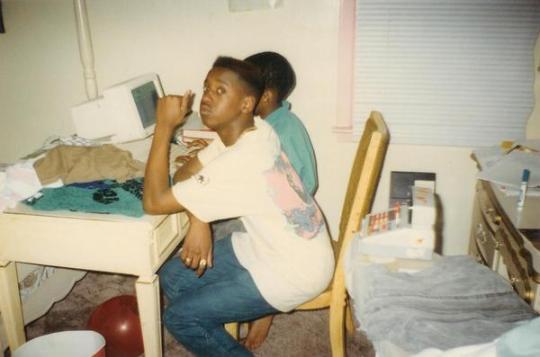
Estranged Earl, alienated—a high plains drifter (not Clint Eastwood, though) who rechristens a town “Hell” through a baptism of blood. Like the Beastie Boys’ version, Earl pulls out a pair of pliers and pulls a bullet out of his chest. He pulls through, true and living. “I’m long distance from my girl,” Mike D raps, so he’s “talking on the cellular,” but Earl is more alienated than that—beyond racking up roaming charges, immersed in dead zones. He “lost [his] phone and consequently all the feelings [he] caught for [his] GF.” Relationships can’t be sustained in these bleak and barren locations. All the blood has been drained from the ruddy faces—sanguine scenery. In his essay “On the Acid Western,” Jonathan Rosenbaum discusses how the subgenre “refuses to respect or valorize bloodshed.” Memory really leaking blood. Congealing. Stuck. To paraphrase Rosenbaum, Earl’s acid eastern “formulat[es] a chilling, savage frontier poetry to justify [his] hallucinated agenda—a view at once clear-eyed and visionary, exalted and laconic, moral and unsentimental, witty and beautiful, frightening and placid.” Earl’s “innocence was lost in the East,” and obsessives speculate whether this refers to Samoa or New York City—how far east we going? Countless spirit-questers pit-stopping at ashrams, searching for that Gifted Unlimited Rhymes Universal guide.
“I wait a beat,” Earl says. His canteen stays filled, auto-replenishes. His “cognitive dissonance shattered” and the “necessary venom restored.” Jodorowsky reportedly once taped snakes to his chest for an experimental theater performance. As if it matters if you think it matters anymore. Or, as ELUCID says, “Words mean things but don’t have to.” Acids and bases. Occident and Orient. Western and Eastern. Up is down.
15. NOTHING LIKE US EVER WAS
Earl’s “EAST” accordion beat—or whatever Orkes Gambus Al Fata instrumentation is at work—is more madcap than madvillainous. In my head is Erick Sermon, though, speaking about how “the flow slow…like a jazz player, or someone on the accordion” on “Knick Knack Patty Wack.” But I’m less concerned with the flow of air through bellows—compressing and expanding—than I am with Earl’s rendering of wind. (Somebody tooted.)
“Let the dead be dead,” Carl Sandburg says at stanza’s end in “Four Preludes on the Playthings of the Wind” (1920). Later, he reports, “The only singers now are crows crying.” And so Earl, a lonesome crow, reminds us—and himself—that “the wind get the ashes in the end” on “December 24.” The whining, wheezing consonance of /-nd/ in “wind” and “end” manages to evoke both the wind itself and the circularity of life. The bar whooshes and whips until we’re at our end, the terminus. That circularity, that full circle: ashes to ashes. “We are the greatest city,” Sandburg repeats, “the greatest nation: / nothing like us ever was.”
Global winds be blowin’—[Of the Soul]—and so billy woods cites that same line on “Haarlem”: “Thebe said the wind get the ashes in the end, bruv.” Check the configuration of the rhime:
The wind | gets | the ashes | in | the end
{birth} {life} {death}
Even that get does work—whether it’s the violence of Death Grips’ “get got”; Too $hort threatening you to “get in where you fit in”; or the satirical sadism of Keenen Ivory Wayans’ I’m Gonna Git You Sucka. The wind wins out—it gets what it wants. On “EAST,” the wind—infinitely personified—“whispered to [Earl], ‘Ain’t it hard?’” It ain’t hard to tell that it is. How about some hardcore? Yeah, we like it raw like M.O.P. But those burns yield ashes. In Adrienne Rich’s poem “The Burning of Paper Instead of Children” (1989), she struggles with the words she uses, knowing “[t]his is the oppressor’s language / yet [she] needs to talk to you.” I know it hurts to burn, she writes, but writing is no less ardent. “The typewriter is overheated, my mouth is burning.”
Let me bring it back to Robert Bly. “In the ancient times,” Bly says, “the movement for the men was downward—a descent into grief. It’s referred to in the fairytale as ‘the time of ashes.’” Ashes, he explains, is the “code word for the ‘out of it’ time.”
We know what it is like to take ashes in our hands. How light they are! The fingertips experience them as a kind of powder… Ashes, we note, find their way into the whorls of our fingertips, cling there, make the whorls more noticeable, more visible, more clear to us. We can take our own fingerprints with ashes.
Ashes, then, aren’t simply for the wind’s taking—ashes are for us, are necessary for us to transcend the grief the boys, the men, and the man-child experience. Bly points to the various cultures that have used ashes in initiation rites: “Ashes Time is a time set aside for the death of that ego-bound boy.” Ready to give up, so you seek the Old Earth. The elders cover your face—even your whole body—with ashes “to make [you] the color of dead people and to remind [you] of the inner death about to come.” Consider Earl’s ashen white face produced in the negative imagery of the “Grief” music video.” “The word ashes contains in it a dark feeling for death,” Bly says. “Ashes when put on the face whiten as death does.”
Earl Sweatshirt is a far cry from knocking blunt ashes into caskets.

16.
Feet of clay, hands of light…
—Moor Mother and billy woods, “Furies” (2020)
For Cheryl I. Harris, Earl’s mother, the feet of clay refer to a vulnerability we all possess no matter how formidable we may appear to become. Earl invokes the King of Babylon’s dream, a dream of an idol “meant to represent all the empires of the world,” echoing Sandburg’s imperious “greatest nation.” Earl believes “we at the feet of clay right now…We posted up live from burning Rome.” Imagine the ash pile. So Earl is here, ostensibly, to turn the disco into something dismal—how Mtume becomes “MTOMB” with its entombed sonics, as if he’s rapping from within a wall, the victim of some Poe immurement.
17.
“I remember woods,” Earl raps on “OD.” “I remember Endom when he wasn’t remembering much, / I remember love healing the ruptures.” I remember is also the refrain and title of Joe Brainard’s poem-memoir, a term which aptly describes much of Earl’s recent output. Brainard’s memories bum-rush into the present:
I remember a dream I used to have a lot of a beautiful red and yellow and black snake in bright green grass.
I remember painting “I HATE TED BERRIGAN” in big black letters all over my white wall.
I remember liver.
If Earl recalls love “healing the ruptures,” then he also likely recalls Fanon: It is essential to convey to the black man that an attitude of rupture has never saved anyone. But Fanon also speaks of young Black men “maintain[ing] their alterity. Alterity of rupture, of conflict, of battle.” Earl, “feeling rushed, grew up quick.” He echoes Biggie, who “grew up a fucking screw-up,” and Raekwon, who “grew up on the crime side” (though Earl’s mama taught him, as we know from “Grief,” how to avoid the pigs, persecution, and prosecution). Eyes on the clock, Earl acknowledges this “trip around the sun” is his “25th,” so “give it up”—his survival alone deserving of a standing [on the corner] ovation. He celebrates life with “gin and rum.” Again, notably not gin and juice—murder was never the case. The only death is the inner death, the death of the ego-bound boy, that Bly describes. Earl’s gin is the drink of be[gin]ning, of genesis (“Light them Phillies up then…”), of Super Nintendo, Sega Genesis, when I was dead-broke, man… “We wasn’t supposed to be alive,” Earl says, yet here he stands.
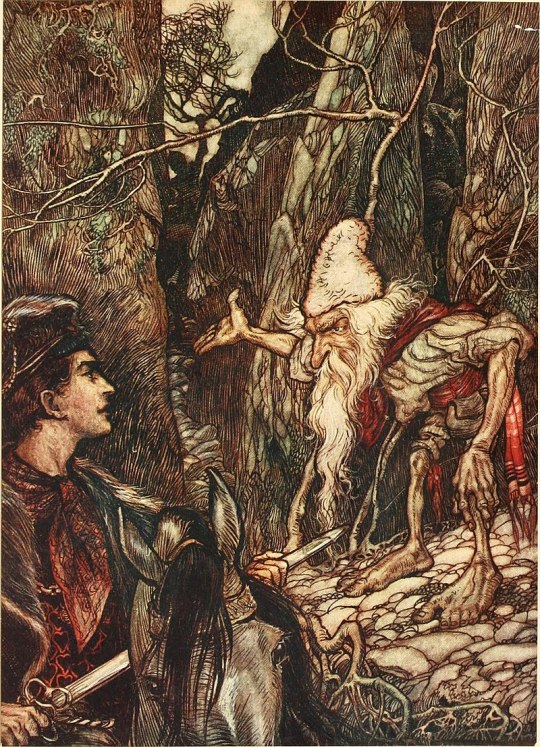
18. RUMINANT
Stare at the Feet of Clay album cover—an evocation of folkloric imagery: a Grimm forest with gnarled tree branches—and the enchanted, diabolic goat lying in wait. Earl’s parasocial following speculate G.O.A.T., of course, but I’m more inclined to mythopoeic possibilities. The Feet of Clay goat glares like Baphomet but frolics like a faun over fractured beats. “OD,” Earl has stated, “brought [him] up out of [his] little wreck”—a wreck of wracked nerves. Adrienne Rich encourages “diving into the wreck” (1973).
I am blacking out and yet
my mask is powerful
it pumps my blood with power.
Earl’s right there with her, submerged and blacking out, but still surviving: Really leaking blood, but refilling the pump.
In her essay “Teaching New Worlds/New Words,” bell hooks invokes Rich’s struggle to navigate the “oppressor’s language.” For hooks, as a Black writer, managing that is even more difficult and historical. “I think now of the grief of displaced ‘homeless’ Africans, forced to inhabit a world where they saw folks like themselves, inhabiting the same skin, the same condition, but who had no shared language to talk with one another, who needed ‘the oppressor’s language.’” hooks explains how Black folks have “remade that language so that it would speak beyond the boundaries of conquest and domination.”
Earl Sweatshirt, especially in his later work, has “altered [and] transformed” English, just as “enslaved Black people took broken bits of English and made of them a counter-language.” The emotional wreckage is also a linguistic heap of fragments—micro-fragments, if we’ve learned anything from Saafir. Earl, in the tradition of his ancestors, “put[s] together [his] words in such a way that the colonizer ha[s] to rethink the meaning of the English language.” “The grammatical construction of sentences in these songs” by Earl, just as by the spirituals of hundreds of years prior, “reflect[s] the broken, ruptured world of the slave.” That crumbling empire Earl mentions was faulted by feet of clay.
At the Museum of Contemporary Art in Los Angeles in 2019, sharing a dais with his mother, Cherly I. Harris, Earl spoke to this lineage directly: “Rap music is slave music—the modern-day iteration of it. Slave communication had to be encrypted. You got a code.” He shifted: “If I know what I’m saying…I can teach it to you.” On Feet of Clay, Earl is teaching to transgress. “I’m cracking my own code,” he says to an audience member during the Q&A, “how it comes out garbled…,” and then he trails off, as if making a deliberate effort to keep his answer cryptic.
hooks always saw language as “a site of resistance.” This included the incorrect usage and placement of words—she called such practices a “rebellion.” Weaponizing syntax. hooks recognized rap music as a continuation of this fight—the latest [sound]clash, hip-hop artists as rebels without a pause—while still acknowledging the collateral damage it might cause.
Rap music has become one of the spaces where black vernacular speech is used in a manner that invites dominant mainstream culture to listen—to hear—and, to some extent, be transformed. However, one of the risks of this attempt at cultural translation is that it will trivialize black vernacular speech. When young white kids imitate this speech in ways that suggest it is the speech of those who are stupid or who are only interested in entertaining or being funny, then the subversive power of this speech is undermined.
Or, as Earl once said on “Chum,” “Too Black for the white kids and too white for the Blacks,” an axiom he’s come to loathe. Perhaps Fanon had the better bar on this subject: “The white man had the anguished feeling that I was escaping from him and that I was taking something with me. He went through my pockets. He thrust probes into the least circumvolution of my brain. Everywhere he found only the obvious. So it was obvious that I had a secret.”
Despite the pitfalls (and, yeah, the pit is bottomless), Earl’s words play [wordplay] a part in retraining minds, all while exorcizing his own demons through a steady diet of ashes and fractures. hooks promises us that “in the patient act of listening to another tongue we may subvert that culture of capitalist frenzy and consumption that demands all desire must be satisfied immediately.” Through his embrace of a language that indulges in passion and cerebral coding, Earl “heal[s] the splitting of mind and body” so common within Western metaphysical thought. Earl Sweatshirt speaks “words that do more than simply mirror or address the dominant reality”; he builds blips into a reality that is worth the rewind.

Images:
Dead Man, dir. Jim Jarmusch, 1995 (screenshot) | Teen at 1990s computer photograph, Unknown (c. 1996) | James Joyce, Age 2, Unknown | ELUCID, Osage album cover (2016), photo by Michael Mally, Philadelphia Inquirer | The Boxer at Rest, bronze statue, Palazzo Massimo alle Terme, Rome, Italy (330-50 BC) | Alphonse Legros, The Pit and the Pendulum, second Plate (1861) | High Plains Drifter, dir. Clint Eastwood, 1973 (screenshot) | Subroc on an Apple IIc, Unknown (c. 1987) | Earl Sweatshirt, “Grief” music video, 2015 (screenshot) | Arthur Rackham, The Water of Life, Grimms Fairy Tales (1916) | Dead Man, dir. Jim Jarmusch, 1995 (screenshot)
124 notes
·
View notes
Text
Daily update post:
Today, Israeli forces went into a hospital in Jenin (it's not in Gaza, there is no border fence between Israel and Jenin, there are no security measures other than getting intel and pre-emptively stopping terrorist attacks) in order to eliminate several Hamas terrorists who were hiding in there. Because the operation would require going into a hospital, the intel had to be VERY reliable, the threat huge and immediate, and the IDF's Chief of Staff had to personally approve it. The intel indicated these terrorists were gonna carry out a suicide bombing, that would use an entire vehicle loaded with explosives, rather than a suicide bomber "just" wearing a vest with explosives. The first such terrorist attack that I know of in Israel happened on Feb 22, 1948 (before the State of Israel was established, but after the Arabs started a war against the Jews). It was carried out jointly by rogue (and antisemitic, based on the slurs they used) British soldiers, who did it in the service of the Arabs' war against Jews. They blew up the explosives on a central street (Ben Yehuda) in Jerusalem. This is a partial picture of the damage caused:

Three buildings were completely destroyed, but the impact was much wider (including glass windows shattering across the city). 58 people were killed, 49 of them immediately, while 9 more died in the hospital from their injuries. Hamas itself carried out their first terrorist attack of this type on Apr 6, 1994. A car filled with explosives bypassed a bus driving children back from school, and then blew up right in front of it. When those who were alive tried to get out of the bus, they couldn't because the driver had been killed, and they didn't know how to open the door. 8 people were murdered in total, and 55 injured, almost all kids and teenagers. An extra touch of sickness? That day was the eve of Yom Ha'Shoah, Israel's Holocaust Memorial Day. The headline screamed in Hebrew, "Blood of the Children," while in the top left corner, there's a reminder about the sirens for Yom Ha'Shoah going off at 10, to observe a national commemorative minute of silence.

There's a very nice and well intentioned campaign right now, enlisting American celebs to ask everyone to stand against antisemitism. That's incredibly important due to the global rise in antisemitism we've witnessed since Hamas' massacre, but the bigger issue to me is that so many people are ignorant on what actually constitutes Jew hatred. So in one reblog they can oppose antisemitism (and absolutely believe that this is their own stance), while in another they can help spread antisemitic narratives, including antisemitic dogwhistles, modern blood libels, erasure of Jewish rights, history and pain, and demonization of Jews. I'm not talking about people who are aware that stuff like saying "From the river to the sea" is repeating a genocidal chant against the Jews. I'm talking about people who honestly see a non-Jew posting an explanation on why anti-Zionism isn't antisemitism (even though Judaism IS Zionist, and anti-Zionism absolutely IS a tool for antisemites, and goes hand in hand with classic antisemitism), and they totally believe this, and reblog such a post, that is speaking over the majority of Jews, who are Zionist, and repeatedly try to explain how anti-Zionism hurts ALL OF US, every single Jew.
But it is a nice vid, so here:
The president of the Israeli Bar-Ilan University said at the Knesset (Israel's parliament) today that they are trying to deal with thousands of students who come to study, but are suffering from post-traumatic symptoms that impair them psychologically and cognitively, whether from the events of the Hamas massacre, or the fighting in Gaza. He mentioned that these symptoms harm every skill needed for academic work, even for people who are exceptionally gifted. BIU is the university with the fourth biggest number of students in Israel (according to 2021 numbers).
In connection to this subject, in the US, charges have been filed against a man who has threatened to blow up a local synagogue and kill Jews, following the war in Gaza.

New Zealand is another country now suspending funding to UNRWA, the UN agency whose members were found to be complicit in the Hamas massacre. The intel was reliable enough that the UN fired some of these employees, rather than suspend them pending a hearing. I first wrote about the news here. NZ is the 15th country to do this, though it should be noted that Switzerland froze its funding to this UN agency even before this latest intel, because of past antisemitism and terrorism encouragement that UNRWA was regularly responsible for. There is a continuously updated list of who's suspending its UNRWA funding at UN Watch.

This is 76 years old Menucha Cholati with her husband Israel.

On Oct 7, they each hid separately from the Hamas terrorists who invaded their community, kibbutz Kissufim, for hours on end. When Israel was finally rescued by Israeli soldiers, he asked to see his wife. He was advised that it's better not to, but he insisted. Holding on to a bag for all his and her meds, which had been pierced by bullets, he got to see his wife, only to discover that the terrorists burned her alive. May her memory be a blessing.
(for all of my updates and ask replies regarding Israel, click here)
#resources#israel#antisemitism#israeli#israel news#israel under attack#israel under fire#israelunderattack#terrorism#anti terrorism#hamas#antisemitic#antisemites#jews#jew#judaism#jumblr#frumblr#jewish#unrwa
130 notes
·
View notes
Text

Sirens (1994)
#sirens#sirens 1994#john duigan#tara fitzgerald#elle macpherson#portia de rossi#kate fischer#wlw#mis gifs
264 notes
·
View notes
Text

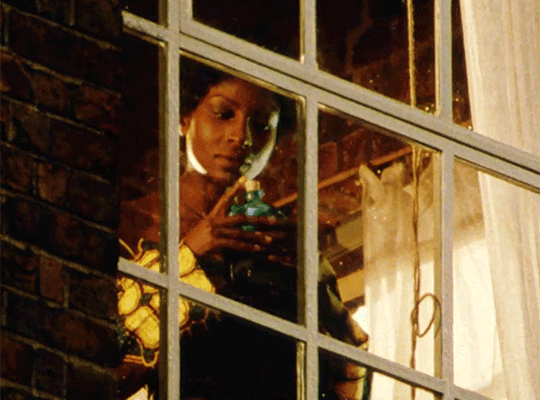

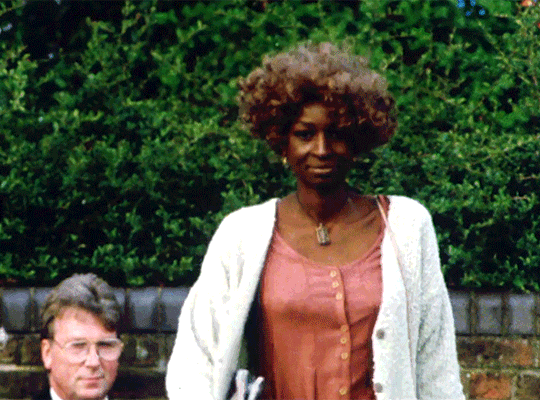
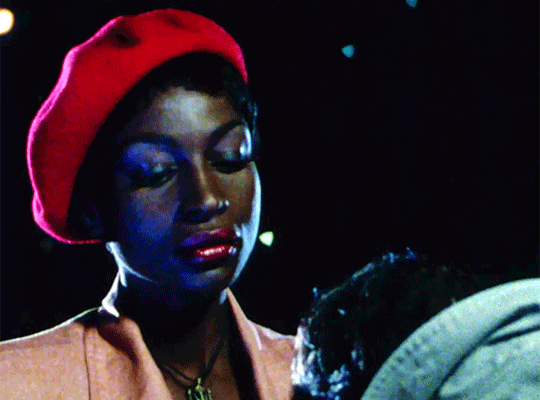

Theo Omambala as Maisie Blue in Siren Spirits: White Men Are Cracking Up (1994) dir. Ngozi Onwurah
#tumblr flagged and hid the og post so im reposting without the last gif 🙄#i dont remember the tags i had on the og post 😭 ffs#anyways#white men are cracking up#film#tv#<- because this is from a mini series#directed by women#directed by black women#90s#1994#i saw this for free on BFI player but idk if ts available outside of the UK ik VPNs exist and all but u know#filmedit#byrobotpussy#gif#ask to tag#black filmmakers#black film#british cinema#women filmmakers#i need more ppl to know about this criminally forgotten miniseries like.... i need more of this#the black feminine mystique used to explore colonialism and fetishisation..... YUPPPPPP#bfi#ngozi onwurah
464 notes
·
View notes
Photo

Georges Spiro (1909-1994) — Ulysses and the Sirens [oil on canvas, 1971]
220 notes
·
View notes
Text
fame - jjk (prologue)
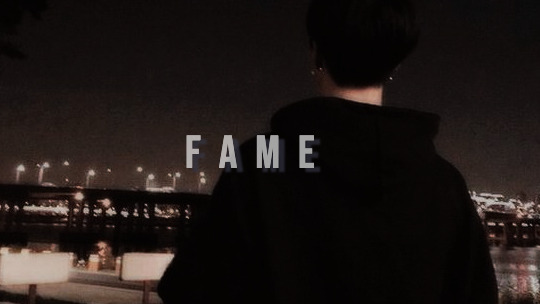
pairing ; idol!jk x idol!oc.
synopsis ; aera; the main dancer in one of the biggest k-pop groups in the world, Siren. debuting in 2014, it was nothing but immense hard work and perseverance (and being on the absolute verge of disbandment), but she and the four girls that grew to become her sisters pulled through. they did it. now they're performing at some of the most significant arenas and stadiums worldwide. meeting a cheeky, flirtatious and annoyingly gorgeous fellow idol that threatens to break down every wall of protection she's built around herself was not part of the plan. her career has always come first, having sacrificed and jeopardised many relationships and friendships in her journey to debut. so why does this time feel different?

story warnings ; smut, explicit language, violent & possibly triggering scenes.
chapter warnings ; none, just an overview of the girlies
a/n: i do not know how to use tumblr i'm a wattp girly born & raised.. pls bear with me. also oc is korean to help with a more realistic (in the most unrealistic fic ever) storyline, excuse the horrible google translated korean words.
another annoying a/n: siren have idol faceclaims (besides Aera) to help bring more visuality & description to their characters. love every single girly in this story & this is not a depiction of their real life personas whatsoever
part ; prologue | one | two | drabble1 | three | four | five | ...
─── ・ 。゚☆: *.☽ .* :☆゚. ───
KPROFILE.com — circa. 2019
Siren (사이렌) is a 5 member South Korean girl group under PARK Entertainment. This group consists of Hanna, Grace, Nali, Aera and Ha-Joon. They debuted on July 17, 2014, with the lead single "Never Enough" on their self-titled mini-album.
Siren Fandom Name: Allure
Siren Fandom Colour: Silver
Siren Dorm Arrangement:
[2015-2019]: Hanna & Nali, Grace (single room), Aera & Ha-Joon.
[2019—] They own a house together, which they have stated in interviews that they spend a lot of time together in, but live in their respective homes during promotional breaks.
Siren Member Profiles:
Hanna

Stage Name: Hanna(한나)
Birth Name: Jang Han-na (장 한나)
Nicknames: Hanunnie, NaNa, Eomma, Mother Leader
Position: Leader, Main Rapper, Sub Vocalist
Birthday: May 12, 1994 [26]
Debut Age: 21
Zodiac Sign: Taurus
Nationality: Korean
Height: 173 cm (5'8″)
MBTI Type: ENTP
Representative Emoji: 🦒
» Hanna Facts
• Hanna was the second member to be revealed for the Siren lineup.
• She trained for 4 years and 2 months, the second longest of all the girls.
• Hanna's representative emoji, the Giraffe, was given to her by their fans as she's significantly taller than the rest of Siren.
• Hanna can speak Korean, English and basic Japanese.
• She is an only child, stating once in an interview that suddenly having four siblings was a system shock when first joining Siren, but now she wouldn't give it up for the world.
• In 2008, Hanna transferred to an international school based in Daejeon, where she learned and studied English. She is fluent and is, more often than not, the spokesperson for their group during international and regular interviews.
• Hanna's ideal type is someone that treats the women in their life with respect and is independent (via Siren's Buzzfeed interview 2018).
Grace

Stage Name: Grace(우아함)
Birth Name: Itō Asami (糸 あさみ)
Nicknames: Sami, Gracie, Asa, Japan's It Girl
Position: Lead Dancer, Lead Rapper
Birthday: December 9, 1995 [25]
Debut Age: 20
Zodiac Sign: Sagittarius
Nationality: Japanese
Height: 166 cm (5'5″)
MBTI Type: ESTP
Representative Emoji: 🦢
» Grace Facts
• Grace was the third member to be revealed for the Siren lineup.
• She trained for 3 years and 10 months, the girls' third longest training period.
• Grace's representative emoji, the Swan, was given to her by their fans for her dance moves are often described as elegant and swan-like.
• Grace can speak Japanese and Korean. Her members are helping her with English, and she's also studying the language.
• She has 2 siblings, an older brother Riku and a younger sister Yua.
• In 2010, Grace migrated to Korea alone after passing multiple rounds of an online audition for PARK Entertainment. When moving to the country, Grace knew very little Korean, but spending much time with her bandmates and strenuous study allowed her to pick up the language quite quickly.
• Grace's ideal type is someone that likes to eat and isn't afraid to show her off. (via Siren's Buzzfeed interview 2018).
Nali

Stage Name: Nali (나리)
Birth Name: Cho Nali (조 나리)
Nicknames: Lily, Li, Na, PARK Princess
Position: Main Vocalist, Visual, FOTG
Birthday: February 14, 1996 [24]
Debut Age: 19
Zodiac Sign: Aquarius
Nationality: Korean
Height: 167.8 cm (5'6″)
MBTI Type: ISTP
Representative Emoji: 🐧
» Nali Facts
• Nali was the first member to be revealed for the Siren lineup.
• She trained for 3 years and 6 months, the fourth longest training period of the girls.
• Nali's representative emoji, the Penguin, was given to her by their fans as she's seen in multiple clips of Siren on various variety shows, running like a Penguin.
• Nali can speak Korean and basic English, having picked up simple terms over the years of housing with her English-speaking members.
• She has one sibling, a younger sister named Ha-Eun.
• Nali joined PARK Entertainment in early 2011 after being scouted at a Girls' Generation meet-and-greet.
• Other trainees quickly envied Nali for her breathtaking visual.
• Nali's ideal type is someone that is confident and can make her feel special. (via Siren's Buzzfeed interview 2018).
Aera

Stage Name: Aera (애라)
Birth Name: Hwang Aera (황 애라)
Nicknames: Ra, Era, Black Cat, PARK's Secret Weapon
Position: Main Dancer, Vocalist, Visual, Center
Birthday: July 22, 1997 [23]
Debut Age: 17
Zodiac Sign: Cancer
Nationality: Korean
Height: 165 cm (5'5″)
MBTI Type: INFP
Representative Emoji: 🐱
» Aera Facts
• Aera was the last member to be revealed for the Siren lineup.
• She trained for 4 years and 3 months, the longest training period of the girls.
• Aera's representative emoji, the Cat, was given to her by their fans as her movements are strong and flexible. Her quick reflexes have been seen and loved on the variety shows that Siren have featured in.
• Aera can speak Korean and English and is learning Japanese from her bandmate, Grace.
• She has one sibling, a younger brother named Hyunjin.
• Aera attended a Language Institute for her schooling based in Seoul. There she learnt English as her second language and is fluent. She will help Han-na in international interviews when speaking English on behalf of the group if needed.
• Aera was one of the first trainees in PARK Entertainment to make the possible lineup for Siren. In interviews, it has been stated that only she and Han-na remain from the original lineup.
• On a live broadcast with one of her members, Aera stated that she chose to audition for PARK Entertainment after watching a dance performance of P.E. ex-trainee, Seulgyeon, who later debuted in another K-pop group, CLC. (via Ha-Joon & Aera V-Live).
• She often choreographed the routines they would perform in their monthly evaluations. She is rumoured to have been disliked by multiple trainees at P.E. that were trying to excel in dance.
• Aera has said she almost pursued the Vocal path instead of dance as there was double the amount of competition in the dance category (—via Siren's Elle interview 2018). Still, mentors refused to let her and told her that her skill was incredibly unique and untouchable by other candidates. (—Hanna via Siren's Elle interview 2018)
• Aera was nicknamed PARK's Secret Weapon upon debut as she was known to have mastered all areas of being an idol.
• Aera's ideal type is someone with a good sense of humour who likes to cook and has a nice smile. (via Siren's Buzzfeed interview 2018).
Joon

Stage Name: Joon (준)
Birth Name: Kim Ha-Joon (김 하준)
Nicknames: Joonie, JJ, Bubba, Baby PARK
Position: Vocalist, Dancer, Sub-Rapper, Maknae
Birthday: December 12, 1998 [21]
Debut Age: 16
Zodiac Sign: Sagittarius
Nationality: Korean-Australian
Height: 167 cm (5'6″)
MBTI Type: ENFP
Representative Emoji: 🐨
» Joon Facts
• Joon was the fourth member to be revealed for the Siren lineup. She trained for 2 years and 9 months, the shortest training period of the girls.
• Joon's representative emoji, the Koala, was given to her by their fans as she's known for her thick Australian accent when speaking English.
• Joon can speak Korean and English, her accent developing during her time spent overseas in Australia with her father's side of the family.
• She has a younger brother named Ji-Yeong, who resides in Australia with her Dad.
• Joon was one of the last trainees to join PARK Entertainment. She was praised for her quick learning and development from the moment she joined the company.
• Joon was known as the quirky, loud girl in P.E. Other members of Siren have said that you always knew she was in the room by her laugh.
• It was rumoured that Ha-Joon was very close to withdrawing from being a trainee due to not being able to handle the bullying and toxicity of other trainees. Former PARK Entertainment trainees stated that Aera, fellow Siren member, sat with Joon on her bed for three hours and let her cry it all out.
• Joon's ideal type is someone that knows lots of jokes and can take care of her. (via Siren Buzzfeed interview 2018).

#jungkook#jeon jungkook#jungguk#jeon jungguk#bts#jungkook x oc#jungkook x reader#jungkook smut#jungkook imagine#jungkook fic#jungkook au#jungkook fluff#jungkook x you#jungkook fanfic#jeon jeongguk
298 notes
·
View notes
Text

The Awakening Of The Forest (L'éveil de la forêt) • 1939.
Paul Delvaux • 1897-1994 • Belgian • Surrealist
Post #1
Paul Delvaux's canvases contain, among other things, a plethora of female nudes. Like classic nudes, they and their surroundings are painted with precise realism. Unlike classic nudes, however, the women are not posing as such but going about their business within fantasy-filled worlds. They stare vacantly toward the unknown and largely do not engage with one-another. It is as if they are captured in a moment in time. If one were to imagine, though, a Delvaux painting coming to life, these women might very well be engaged in robotic, ritualistic movement - the Stepford wives of a surreal canvas. At times disconcerting, the canvas sometimes include fully-dressed,voiristic men. Enigmatic as they are, Delvaux's women hold a beautiful, enigmatic appeal.
Delvaux's inspiration for his visual imagery came from books he loved as a child. Indeed, the painting above is a recreation of a scene from Jules Verne's Journey to the Center of the Earth. He also utilized his childhood fears and dreamscapes as creative material for his visual narratives.
Though not depicted in this post (perhaps next post) skeletons, trains and train stations, and architecture are common themes in Delvaux paintings.

La pause du jour (The Break of Day) • 1937 • The Guggenheim Museum. [This was the first Surrealist painting Peggy Guggenheim added to her collection.]
Below: Femme dans une grotte (Woman in a cave) • 1936 • Oil on canvas • Thyssen Bornemisza Museum, Madrid


La Sirène au claire de lune (A Mermaid in Full Moonlight) • 1940 • Southampton City Art Gallery, Britain. [ As a boy, Delvaux loved the story of the Sirens in The Odyssey.]

Le jardin nocturne (The Night Garden) • 1941 • Location unknown

Les grandes sirènes (The Great Sirens) • 1947 • Metropolitan Museum of Art, New York City
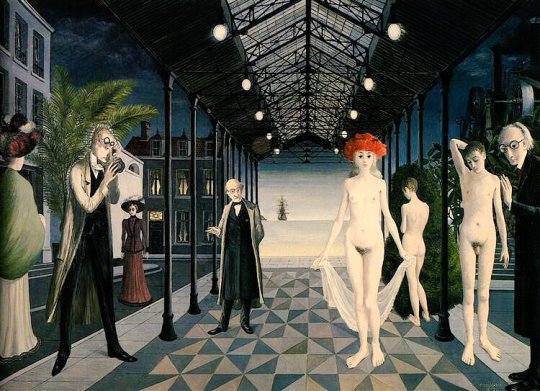
Hommage à Jules Verne • 1971 • Fondation de Paul Delvaux, Saint-Idesbald, Belgium

La Vénus endormie (The Sleeping Venus) • 1944 • Tate Modern, London
#art#painting#fine art#art nude#bannedonpinterest#paul delvaux#art of the subconscious#20th century art#surrealism#belgian artist#metaphysical art#sirens#mermaid#fantasy worlds#oil painting#mythological painting#guggenheim#art institute of chicago#the metropolitan museum of art#delvaux foundation#jules verne#banned on pinterest#art history
109 notes
·
View notes
Text
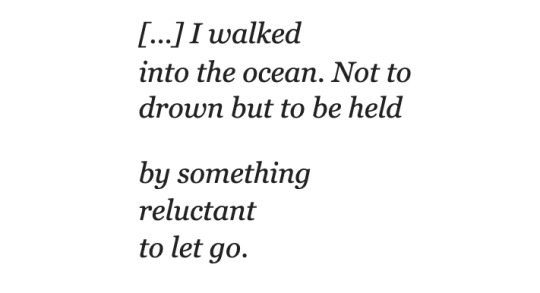



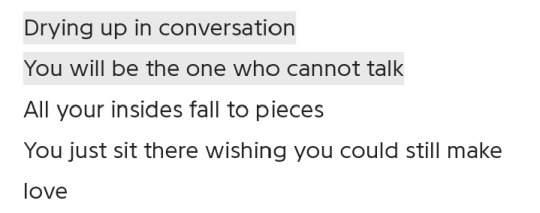

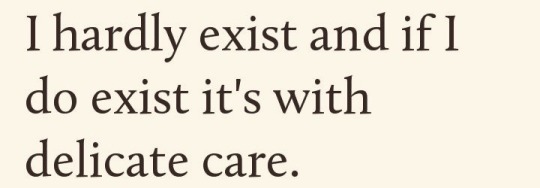



Nature as a metaphor for love
Postcard from gone, Leila Chatti//Sirens (1994)//Summer, Safia Elhillo//The wilds//High and dry, Radiohead//Walkabout (Nicolas Roeg, 1971)//Água viva, Clarice Lispector//Dancing Bathers (1891), Cuno Amiet//Clair de lune, Tathève Simonyan//House of the dragon
#love#hands#touch#🌿#🐚#web weaving#quotes#poetry#words#mine#water#lake#wlw#sapphic#lesbian#mermaids#sirens#the wilds#shelby goodkind#toni shalifoe#shoni#erana james#mia healey#house of the dragon#got#game of thrones#hotd#rhaenyra targaryen#alicent hightower#rhaenyra x alicent
497 notes
·
View notes
